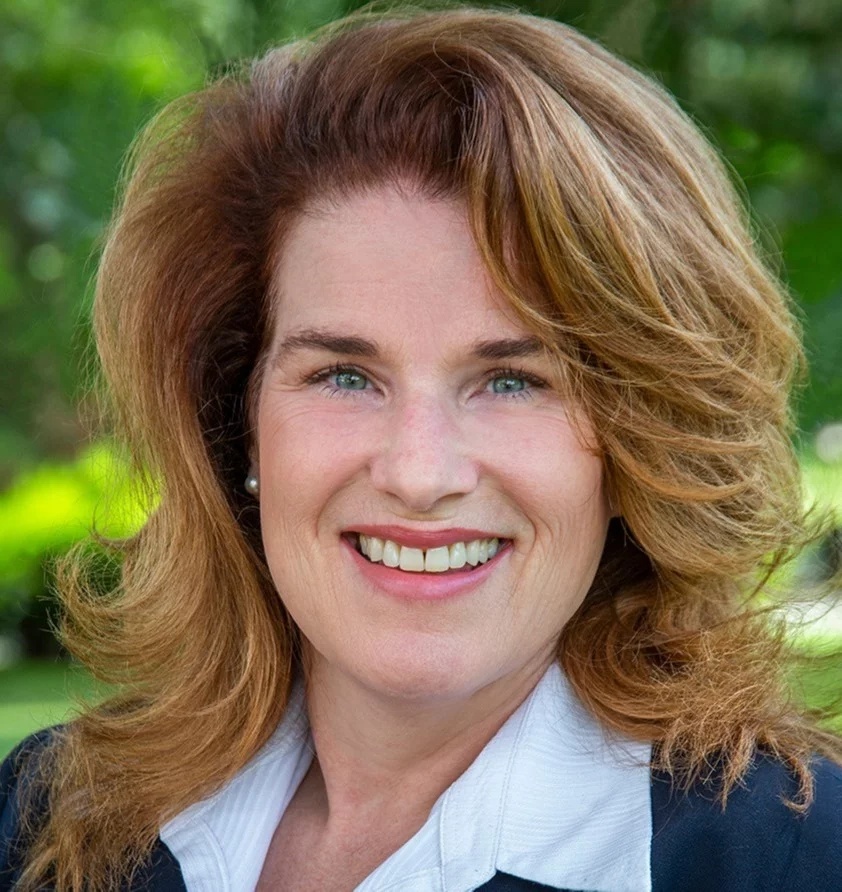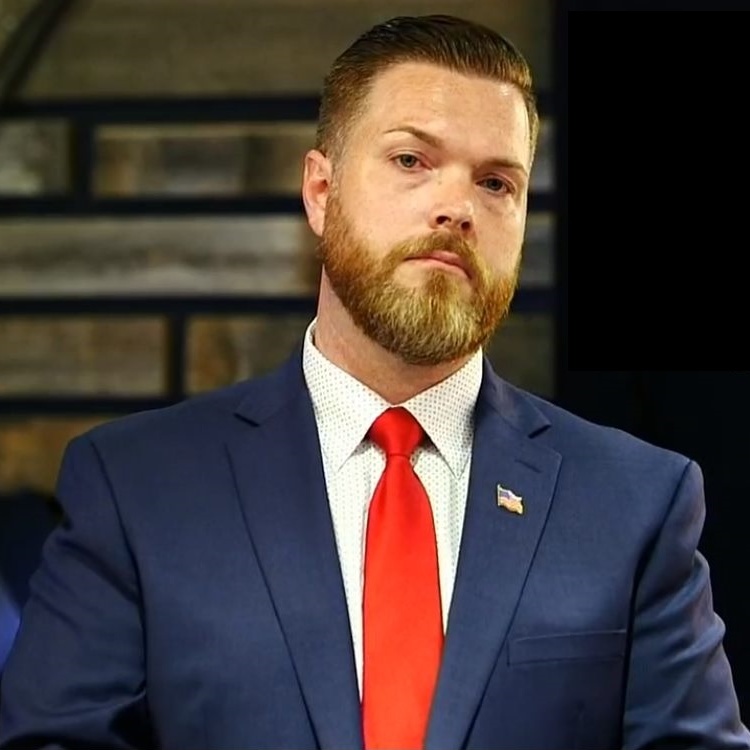Tulsa Election 2020 Category
I voted in person yesterday at 9:35. The line was out the door, but not very far, and I slid my ballot into the scanner and was finished in 20 minutes. The other, larger precinct that votes at the same church had a line across the parking lot, but I suspect that many of those people were from my precinct but had just joined the first line they saw. When I drove back by mid-afternoon and toward the end of the day, there were no lines at all, and that was true of other precincts I passed.
We opted for a home watch party -- me, my wife, our younger two kids (the oldest is away in grad school). We started out scanning local stations at 6 pm, as states began to report results, but they were all in local-news mode, and only PBS was covering national results. We couldn't tolerate that for long, so we switched the screen to the computer, and pulled up Fox News on one size and DecisionDeskHQ.com on the other. We had carryout chicken tikka masala from Desi Wok and later snacked on some Plymouth East Meadow Cheddar I'd brought back from a recent visit to Calvin Coolidge's home town and the cheese factory founded by his father and revived by his son.
I did go out at about 8:30 to take pictures of posted results from nearby precincts. Our precinct officials posted the tape in the window, as required, but they allowed enough overlap with a notice posted next to it so that the results for the presidential and U. S. Senate races were hidden by the other piece of paper.
What I could see was encouraging. Although the midtown precincts I checked were fairly evenly divided between Democrat and Republican candidates, State Question 805 was losing by a substantial margin.
While driving around I flipped through the radio stations. KRMG's Dan Potter had current Mayor GT Bynum IV and former Mayor Susan Savage. I wondered on Facebook why KRMG didn't include a Republican in their coverage, but Democrat allies on past city tax and zoning battles reminded me that they didn't include a Democrat either. Both mayors are proud members of the Money Belt Uniparty who may have only a vague idea where the three eastside seats on the ballot are located. Bynum and Savage were both gleeful about the defeat of District 5 Councilor Cass Fahler, the strongest council ally for Tulsa police officers and the strongest opponent of mask mandates. Bynum called Fahler's campaign "lazy," contrasting it with Mykey Arthrell's tireless pursuit of votes. They also sounded thrilled about the re-election of Connie Dodson in District 6 and Lori Decter Wright in District 7.
I thought that Republicans had a good chance at taking two of the three City Council races on the ballot; Dodson had forged a moderate path on police and masks and seemed likely to win re-election. Fahler's re-election was killed by another 2-to-1 early vote advantage; he won election day but lost the total by 347 votes. I have heard that neighborhood social media pages in the northwestern part of the district were extremely hostile to Fahler, particularly over his stance on mask mandates. These seem to be popular areas for progressives who want to live near the city center but can't afford to live any nearer than Yale Ave. District 6 wasn't close; challenger Christian Bengel was badly underfunded, and the FOP had endorsed incumbent Dodson very early in the race. Wright's challenger Justin Van Kirk poured a ton of his own money into the race, narrowly won among election day voters, but lost by about 1600 votes because of Decter Wright's 3-1 early voting ratio.
Here is a problem with non-partisan city elections on the same ballot as highly partisan races like President and Senate: Voters mark the straight-party line (as Republicans were encouraging voters to do), but that doesn't cast a vote for allegedly non-partisan council races. On such a long ballot, with as many as 18 items for some voters, a non-partisan race at the very end is easy to ignore, and it's easy to vote for the familiar name.
It's apparent that the Tulsa County Democratic Party has been taking local elections seriously and helping Democrats seeking local non-partisan office. The Tulsa County Republican Party needs to follow suit, to work on local races throughout the election cycle, identifying and recruiting potential candidates who support the GOP's values and policy aims, clearing the path for good candidates (perhaps by conducting an endorsing convention to decide among multiple Republican contenders), and connecting them with money and volunteers. The Tulsa GOP needs to be monitoring the performance of our city, county, and school officials, with reporters at every meeting, recording and highlighting examples of bad judgment and favoritism. It's not enough to get busy in the last few months before an election. The Oklahoma GOP's dominance in the legislature was built by party officials back in the late '90s and early 2000s by men like 1st Congressional District Chairman Don O'Nesky, 2nd District Chairman Bob Hudspeth, 4th District Chairman Steve Fair, and State Chairman Gary Jones, who identified candidates from among local leaders, respected by their communities, not necessarily active in politics, but who had a conservative outlook on public policy. The candidates who will put themselves forward aren't always the best positioned to run a serious race or to govern well; a party's job is to identify good candidates, encourage them to run, and facilitate their efforts with resources.
Back at the house: Fox's reluctance to call states that were obviously in Trump's column and out of reach for Biden (like Texas and Florida) got frustrating after a while, and we switched to Newsmax, then eventually to the Daily Wire for their running commentary.
The four of us were doing our own results reporting, each digging into county-by-county results on DecisionDeskHQ.com on our own computers and sharing interesting finds, while listening for commentary or breaking news. I enjoyed using the map results on the Oklahoma State Election Board results page to drill down to the precinct level to see which precincts were still outstanding and the patterns of support for each candidate. The only big flaw is that it doesn't show different colors in the non-partisan races, so there's no easy way to tell where 805 won and lost or which Tulsa City Council candidates won which precinct.
We stayed up long enough to see Trump apparently about to win Wisconsin, Michigan, Georgia, North Carolina, and Pennsylvania, and suddenly the numbers stopped updating. There were reports that vote counting would stop in Philadelphia and in Atlanta, an obvious move to wait for downstate votes to finish coming in so corrupt big-city machine officials could manufacture enough ballots to tip the states to Biden, the same way Kennedy won Illinois in 1960. We all headed to bed shortly thereafter.
Jamison Faught at Muskogee Politico has a map-filled post on the Oklahoma results. Trump and Inhofe won all 77 counties. This is the fifth presidential election in a row that the Republican nominee has swept the state, although the margin in Oklahoma County was only 3400 votes. Democrats lost their last three rural seats in the State House, plus two in Oklahoma County. Republicans now control the House by 82-19 and the Senate by 39-9, and all of the Democrat seats are in the two biggest cities (OKC and Tulsa) and college towns (Norman and Stillwater). This is almost a complete reversal from the situation in the early 1990s, when rural districts (except northwest Oklahoma's wheat country) were solidly Democrat and nearly all Republican seats were in Tulsa and OKC and their suburbs.
I was disappointed to see the defeat of Republican Cheryl Baber in Senate District 35, a seat that had been held for 32 years by conservative Republicans (Don Rubottom, Jim Williamson, Gary Stanislawski), and before that by long-serving moderate Republican Warren Green. Baber had survived a bruising primary and runoff with establishment-backed Kyden Creekpaum. Although Creekpaum endorsed Baber in the general election (wisely so if he hopes to have a future in Oklahoma Republican politics), the endorsement came late in the game, and Democrat Jo Ann Dossett had racked up a two-to-one advantage in absentee-by-mail ballots, 7402 to 3723. Baber dominated election day voting, but fell short by 638 votes. The same pattern can be seen in the Tulsa County Commission race and in several vulnerable Democrat seats. Republicans are going to have to match and surpass the Democrats efforts in early voting, and to plan for targeting voters soon after the ballot is set.
Massive early voting allows well-funded candidates to target and influence voters and lock in their votes before the candidate with fewer dollars, who delays mailers until closer to election day to make her money stretch as far as possible, has put any information in front of the voters. One of the saddest news items in this election season was a surge of searches on the question "Can I change my vote?" after the second presidential debate.
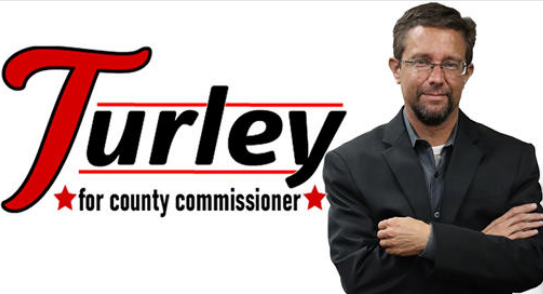
The only contested Tulsa County office on the ballot is a rematch for Tulsa County Commissioner, District 2. Republican Josh Turley seeks to defeat 12-year incumbent Democrat Commissioner Karen Keith.
Dr. Turley, whose doctorate is in organizational leadership, had a distinguished 24-year career at the Tulsa County Sheriff's Office, serving as the TCSO's first civilian crime scene investigator and developing the department's first Risk Management program, which succeeded in reducing car accidents involving deputies and tort claim payouts. Turley independently developed policies and procedures to be used by smaller sheriff's offices and county jails to improve performance and minimize risk. Turley has since built a private company, Everything Behind the Badge, which develops custom policy and procedure manuals to help local law enforcement agencies improve their professionalism at an affordable price. Turley has been endorsed by the Tulsa County Deputy Sheriff's local, the Tulsa Police local of the Fraternal Order of Police, the Oklahoma Second Amendment Association (OK2A), and State Sen. Nathan Dahm, among many other endorsements displayed on the Dr. Josh Turley for Commissioner Facebook page.
Turley is an advocate for genuine transparency in Tulsa County government. Turley wants Tulsa County to follow an open data policy -- by default, data used and generated by county officials (except for personal data restricted by law) would automatically be made available to the public, without the need for an open records request.
A county commissioner is responsible for maintenance of all public roads in the district that are not state highways or within city limits. District 2, which covers the western arm of Tulsa County, includes a great deal of unincorporated territory where the only roads are county-maintained roads. Turley has called attention to the terrible state of roads like West 41st Street, the main east-west artery in western Tulsa County south of the Arkansas River, and Old Highway 51, which is popular for cycling and access to fishing on the river below Keystone Dam. He says that incumbent Karen Keith hasn't fulfilled her road responsibilities during her 12 years in office. Rural roads are perhaps out-of-sight and out-of-mind for a midtowner like Keith.
Democrat incumbent Karen Keith, a former television reporter and anchor, was first elected in 2008. She has been very visible this year representing Tulsa County at daily COVID-19 press conferences. She was also very visible in her opposition to President Trump's visit to Tulsa in June, calling for city officials to say no to Trump in order to "preserve our image and save our downtown and arena." Turley ran a strong race against Keith in 2016, but fell short against Keith's name recognition and fundraising advantage.
Keith is unquestionably likeable, and her likeability seems to have tempted many Republicans to consider voting for her as their one gesture toward bipartisanship. That would be a mistake. We need new county commissioners, regardless of party, because the current commissioners aren't being good stewards of taxpayer resources. Electing Josh Turley to District 2, the only seat on the ballot this year, would be a great first step.
Tulsa County Commissioners, acting as the board of the Tulsa County Industrial Authority (TCIA), have authorized hundreds of millions of dollars in bonds. Some of these are revenue bonds, borrowing money now to fund projects, and pledging future sales tax revenues to pay the debt. As of June 30, 2019, according to the TCIA's 2019 annual audit, TCIA had $111,729,421 in outstanding revenue bonds. Counties, like cities and school districts can also issue general obligation bonds which are repaid by higher property tax rates. According to Tulsa County's 2019 CAFR, the county has no general obligation debt.
TCIA also issues bonds known as conduit debt to finance construction projects for businesses (e.g. nursing homes, apartment complexes) and non-profits (e.g. schools, hospitals) that "promote the development of industry and culture and industrial, manufacturing, cultural and educational activities... [to] benefit and strengthen culture and the economy." Tulsa County taxpayers are not on the hook for these bonds; they are repaid by the end user. The end user benefits in that the bonds are typically tax-exempt, making them more attractive for investors. As of June 30, 2019, TCIA had $604,545,944 in outstanding conduit debt, an increase of $73.6 million from the previous year, "the result of a $53.7 million lease revenue note and a $66.9 million revenue bond being issued during the fiscal year, offset by debt repayments."
MunicipalBonds.com has a couple of examples of how conduit bonds can be controversial when they are issued to finance private companies that were rejected by banks. Back in 2003, BatesLine called attention to conduit debt TCIA issued to finance the purchase of apartment complexes for low-income housing by company run by a "dear friend" and bond adviser of one of the county commissioners; TCIA then issued bonds for double the original amount to a non-profit that purchased the complexes from the first company.
2003 was before Karen Keith was a commissioner, but just yesterday I was made aware of a case of securities fraud that involved numerous conduit bond issues from various local authorities, including $5,700,000 in bonds issued by Keith and her fellow TCIA board members on March 21, 2014, to an entity controlled by Atlanta nursing home developer Christopher Brogdon. I am just learning about this, so I don't know all the details, but at the very least it looks like Keith and the TCIA should have done more due diligence before issuing the bonds, given that this deal was the last in a long string of questionable deals cited by the Securities and Exchange Commission. In any event, it's clear that we need analytical, skeptical county commissioners on the TCIA who will carefully scrutinize every entity that seeks to borrow against our county's reputation.
What revenue bonds, general obligation bonds, and conduit bonds have in common is that the three county commissioners (acting as TCIA board members) decide whether to waive competitive bidding in deciding which law firm will serve as bond adviser and which financial institution will issue the bonds. I have yet to find an instance when the TCIA opted for competitive bidding for a bond issue, or even an instance when any one of the three commissioners voted for competitive bidding.
During the 2016 campaign, I called attention to a contemporaneous news item relevant to this topic: Then-state bond adviser Jim Joseph and then-State Auditor and Inspector Gary Jones spoke out against the widespread practice of school districts waiving competitive bids for bond issues.
Oklahoma school districts are spending millions of taxpayers' dollars every year by paying high fees for financial advisers, bond counsel and underwriters, says Jim Joseph, the state's bond adviser.Many school districts continue to do the same thing year after year, while stubbornly refusing to use cost-saving competitive selection measures, he said.
"It's like picking a roofer right after a storm because he's the first guy who came to your door," Joseph said. "You're not going to get a deal, that's for sure."
State Auditor Gary Jones agreed school boards could save Oklahoma taxpayers money by obtaining competitive quotes.
"There could be tens of millions of dollars saved over a short period of time," Jones said.
Joseph went on to compare the massive fees paid by school districts to bond counsel and financial advisers, often a percentage of the bond issue, with the smaller amounts state agencies paid for much larger bond issue. Several were listed; here's one example:
For example, Midwest City-Del City Public Schools did a $72.62 million bond issue in 2012 without competitive bids. It paid the Floyd Law Firm of Norman $363,100 for serving as bond counsel and allowed Stephen H. McDonald & Associates and BOSC Inc., a subsidiary of BOK Financial Corporation, to equally split $508,340 for serving as co-financial advisers, records show.Compare that with a $310.48 million bond issue by the Grand River Dam Authority that was done in 2014 through a competitive process. The state paid a $114,000 bond counsel fee and a $133,448 financial adviser fee.
Although the Grand River Dam Authority bond issue was more than four times as large as the Midwest City-Del City school bond issue, the school district paid more than triple the amount in bond counsel and financial adviser fees, records show.
Joseph pointed out that bond counsel, underwriter, and financial advisers often each take 1% of the bond issue as their fee, which Joseph says "makes no sense at all. It doesn't take any more work to do a $20 million issue than a $10 million issue for the bond counsel and financial adviser, but the fee is twice as high, if payment is on a percentage basis."
What does this have to do with Tulsa County? Joseph noted that the firm of Hilborne & Weidman was frequently listed as bond counsel for these competition-waived bond issues. Hilborne & Weidman was also one of two bond counsel firms selected in 2003 by the Tulsa County commissioners (acting as the Tulsa County Industrial Authority) for the Vision 2025 revenue bonds, a massive bond issue against up to all 13 years of the new sales tax. I urged at the time that Tulsa County put all Vision 2025 bond-related contracts up for competitive bid, as commissioners haggled publicly over which firms would get a piece of the action, but they waived competitive bidding and split the baby, giving each favored firm half of the business.
Over the last 17 years, there's been a complete turnover on the County Commission, but the tradition of waiving competitive bidding has persisted. Here's one example from May 26, 2009, in Karen Keith's first year as a commissioner ($110 million in bonds), another from February 1, 2010, and yet another unanimous vote to waive competitive bidding from this year, from the September 21, 2020, meeting of the Tulsa County Industrial Authority.
On May 23, 2016, the commissioners, including Karen Keith, voted unanimously to waive competitive bidding on indebtedness, but neither the minutes nor the agenda explain the amount or nature of the indebtedness. Given the proximity to the April 2016 Vision Tulsa vote, my guess is that the vote was on the revenue bonds pledged against that new 15-year sales tax stream.
How many more projects might have been built if Vision 2025 bonds had been competitively bid? Could we have had a new juvenile justice facility without being asked for more tax dollars in two separate elections (2005 and 2012)?
Given the size of these bond issues, even a 1% fee would be a huge amount for a small firm. The temptation to corruption would be immense. Think of the money the former Skiatook superintendent got in kickbacks from the janitorial supply company. That would be chump change compared to even a small cut of 1% of a $500 million bond issue.
Oklahoma taxpayers need legislation to require competitive bidding on bonds and to require counties, school districts, and cities -- and their associated Title 60 trusts -- to use the state bond adviser rather than hiring their own favored exclusive firms.
Until we get that legislation, we need county officials who will support transparency and fiscal prudence. We need more than mere niceness; we need intelligence, initiative, and analytical skill. Dr. Josh Turley, a good man with many years' experience as a county employee, can provide that kind of leadership, and I hope Tulsa County District 2 voters elect him as their new county commissioner.
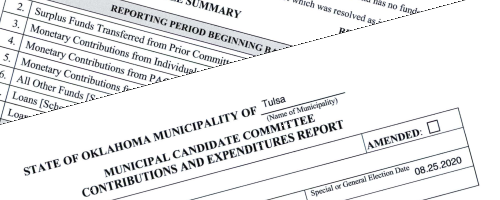
Oklahoma state statute and Oklahoma Ethics Commission rules require campaign committees for city elections to file a campaign contributions and expenditures report with the City Clerk's office 10 days prior to an election (effectively 8 days, since the clerk's office is closed on the weekend, so the report is due that Monday at 4:30 pm), as well as last-minute contribution reports within 24 hours of receiving donations larger than $1,000 within the last two weeks. Reports are also due one month after the end of each quarter.
For the six candidates for Tulsa City Council on the November 3, 2020, ballot, that means their pre-election report was due to the Tulsa City Clerk at 4:30 pm on Monday, October 26. So far District 5 incumbent Cass Fahler (R) and challenger Mikey Arthrell (D), District 6 incumbent Connie Dodson (D), District 7 incumbent Lori Decter-Wright (D) and challenger Justin Van Kirk (R) have filed their reports. District 6 challenger Christian Bengel's (R) pre-election report is the only one of the six that does not appear on the City Clerk website, but he has provided me his report directly, and it is available below.
There are several important omissions from the reports that were available online. This may be an error in the City Clerk's uploading of the reports, rather than an omission by the candidate. Connie Dodson's pre-runoff Schedule A, a list of itemized contributions, is missing; the cover page of the report indicates that it includes $4,250 in PAC contributions which would be quite interesting. Likewise, there is no itemization of Mykey Arthrell's $3,545.83 pre-general election expenditures.
Several PACs are shown on individual candidate reports to have made contributions, but none of them filed reports: Tulsa Biz PAC (affiliated with the Tulsa Regional Chamber), Fraternal Order of Police, International Association of Fire Fighters, International Brotherhood of Electrical Workers.
For the candidates who were on the August 25, 2020, city general election ballot, but not on next Tuesday's runoff ballot either because they won without a runoff or lost, their post-election quarterly report will be officially due Saturday, October 31, will be effectively due Monday, November 2, 2020, at 4:30 pm, but those reports could have been filed at any time since the beginning of this month, since they only cover contributions through September 30. Many of the candidates failed to file reports prior to the August election; we're looking forward to learning how much they raised and spent.
Here are the aggregate totals for the candidates in Tuesday's Tulsa runoff election, with a list of notable contributions. The name of the seat has a link leading to the Tulsa City Clerk's ethics report webpage for the district; the candidate name has a link to a PDF compiling all of the candidate's reports for this election cycle, which I have compiled, bookmarked, and OCRed.
 Putting this together is a very tedious process -- clicking dozens of links, merging PDFs in the right order, then combing through the reports for contributors, double-checking sloppy reporting, and summarizing all of it below -- but BatesLine is the only place you can find organized campaign finance information for the 2020 City of Tulsa runoff. If you appreciate the hours that I've put into this, hit the tip jar and help cover the costs of keeping BatesLine going, which include web hosting, database access, domain registration, and computer equipment. If you'd like to support the site with advertising, contact me at blog@batesline.com.
Putting this together is a very tedious process -- clicking dozens of links, merging PDFs in the right order, then combing through the reports for contributors, double-checking sloppy reporting, and summarizing all of it below -- but BatesLine is the only place you can find organized campaign finance information for the 2020 City of Tulsa runoff. If you appreciate the hours that I've put into this, hit the tip jar and help cover the costs of keeping BatesLine going, which include web hosting, database access, domain registration, and computer equipment. If you'd like to support the site with advertising, contact me at blog@batesline.com.
In the past, when all the records were on paper only, the daily paper would have a City Hall reporter compile the list of contributions (back then $200 and under did not have to be reported). They don't bother nowadays. I find one recent story about campaign finance, focused on an out-of-state organization called the Accountability Project Institute, which is making independent expenditures against Mykey Arthrell and Lori Decter Wright; these candidates support an Office of Independent Monitor for the Tulsa Police Department, which the FOP opposes. No stories at all about the candidate's campaign finance reports. Perhaps they feel that now that the information is online, there's no need to bother. But busy voters need someone to curate the massive amounts of public information now available.
In most cases (every candidate except Cass Fahler), the totals on the most recent report don't match the sum of the amounts reported on each report to date. Candidates (or their treasurers) seem confused on the meaning of the Aggregate Total column. I've put my figures in square brackets. I have not double-checked that the reporting period totals are correct; in some cases this is impossible because key pages are missing from the online records. Most of the mistakes in calculating aggregates for the campaign and for individual contributors would be avoided if candidates were required to use the Oklahoma Ethics Commission system, as they were for a few years in the late 2000s and early 2010s, where individual transactions are uploaded, and the system calculates the totals.
Cass Fahler (R): Carryover, $0.96, individual contributions, $15,785.00; PAC contributions, $9,500; total $25,285.96. Expenditures, $20,491.71. Notable contributions: Tulsa FOP, $5,000; Greater Tulsa Association of Realtors, $2,500; Tulsa Biz PAC; International Association of Fire Fighters, $1,000; Robert Zoellner, $2,700; Kurt Dodd, $2,000; Justin Van Kirk, $1,000; Bobby Van Holt, $1,000; John Stava, $1,000; Martha Blackburn, $750; CeCe Siegfried, $750; Meyer Siegfried, $750; Cord Charvat, $500; Jay Helm, $500; Steve Edwards, $500; Warren Ross, $250; Lou Reynolds, $200; Dewey Bartlett, Jr., $200;
Mykey Arthrell (D): Individual contributions, $13,255.00 [$13,355]; in-kind contributions, $1,000; total $14,255.00 [$14,355.00]. Expenditures, $11,094.38 [$12,094.38]. Notable contributions: Robin Flint Ballenger, $2,800; RE UP Dispensary, $1,000; Justin Schuffert, $1,000; George Krumme, $1,000; Kathy Taylor, $500.
Christian Bengel (R): Individual contributions, $2,086.64 [$2,196.94]; PAC contributions, $1,000; loans (all from self), [$7,573.37]; total $3,086.64 [$10,670.31]. Expenditures, $3,086.64. Notable contributions: IBEW PAC, $1,000.
Connie Dodson (D): Carryover, $1,546.69; Individual contributions, [$10,435.00]; PAC contributions, $9,750 [$13,750]; total $18,561 [$25,731.69]. Expenditures, [$14,525.77]. Officeholder expenses, [$1,158.70]. Notable contributions: FOP 93 PAC, $3,500; IBEW Local 584, $3,000; Realtors PAC, $2,000; Tulsa Firefighters Local 176, $1,000; Lloyd Robson, $2,800; Cindy Robson, $2,800; Joe Robson, $1,000; Joe Chadwick, $1,000; Amulfo Murillo, $1,000; Sharon King Davis, $150; Lou Reynolds, $200.
Justin Van Kirk (R): Individual contributions, $32,885.00 [$25,085.00]; PAC contributions, $7,500; loans (all from self), $10,300.00 [$10,500.00]; total $50,685.00 [$43,085.00]. Expenditures, [$40,135.21]. Notable contributors: FOP PAC, $7,500; Cord Charvat, $3,300; Robert Zoellner, $2,800; Justin Van Kirk, $2,800; Mike Case, $2,700; Albert Reynolds, $2,000; Jim Taylor, $1,105.
Lori Decter Wright (D): Carryover, $148.12; individual contributions, $17,689.50; PAC contributions, $3,500; political party contributions, $550; in-kind contributions, $3,328,49; total, $21,739.50 [$25,216.11]. Expenditures, $20,556.69 [$20,786.08]. Notable contributors: Tulsa Biz PAC [Tulsa Regional Chamber], $1,000; Tulsa Firefighters IAFF PAC, $2,500; Heart of the Party Tulsa County Federation of Democratic Women, $550; Cheryl Roberts, $1,400; Friends of Crista Patrick [District 3 Councilor], $500; Kathy Taylor, $800; Bill Lobeck, $500; Vanessa Hall-Harper [District 1 Councilor], $50; Ken Levit, GKFF executive director, $150; Teresa Burkett, $250; Sharon King Davis, $150.
Tulsa Mayor GT Bynum IV narrowly avoided a November runoff, winning re-election outright with 51.9% in this first round of City of Tulsa voting. 30-year-old Greg Robinson II, running to Bynum's left, garnered 28.8% of the vote. Ken Reddick, running to Bynum's right, finished third with 13.8%, followed by Ty Walker at 2.8% and Craig Immel at 1.9%, the remaining candidates were below 1%. Turnout was 70,745, with 23.0% voting early. Had another 2,637 voters turned out to vote for candidates other than Bynum, he would have faced a November runoff with Robinson.
I'll be on Talk Radio 1170 KFAQ at 7:30 am Wednesday morning to talk about the results with Pat Campbell.
I had an enjoyable time as a member of a panel of commentators for KJRH's election night coverage, talking about the results and their significance. One of the striking things about the conversation was hearing about the Democratic Party's endorsement of Robinson, setting a precedent that Republicans would do well to follow. The Tulsa County Democratic Party chairman said something about flipping a council seat, which was humorously revealing. We all know that political philosophy matters, even in city government, and that people have party affiliations, despite the lack of a partisan primary. About 15 years ago, I proposed an idea I called multi-partisan elections, in which candidates of all parties would run on the same ballot, but with party labels, which might include words and phrases other than the names of national parties. The label next to a candidate's name might be that of a local coalition formed around local issues.
I started playing around with maps. I have QGIS, an open-source graphical information system suite, precinct and municipal boundary shapefiles from OK Maps, and precinct-by-precinct results from the Oklahoma State Election Board. I used Microsoft Access (I know, I know) to process the election board data before linking it to the precinct map. Here's my first, clumsy effort: A map showing the "swing" between Bynum's June 2016 vote and his vote today. The deepest purple shows precincts where Bynum's share of the vote fell by at least 25 percentage points; darkest green shows where Bynum's share of the vote went up by at least 25 points; in precincts with no color, his 2020 share of the vote was within 5% either side of his 2016 share.
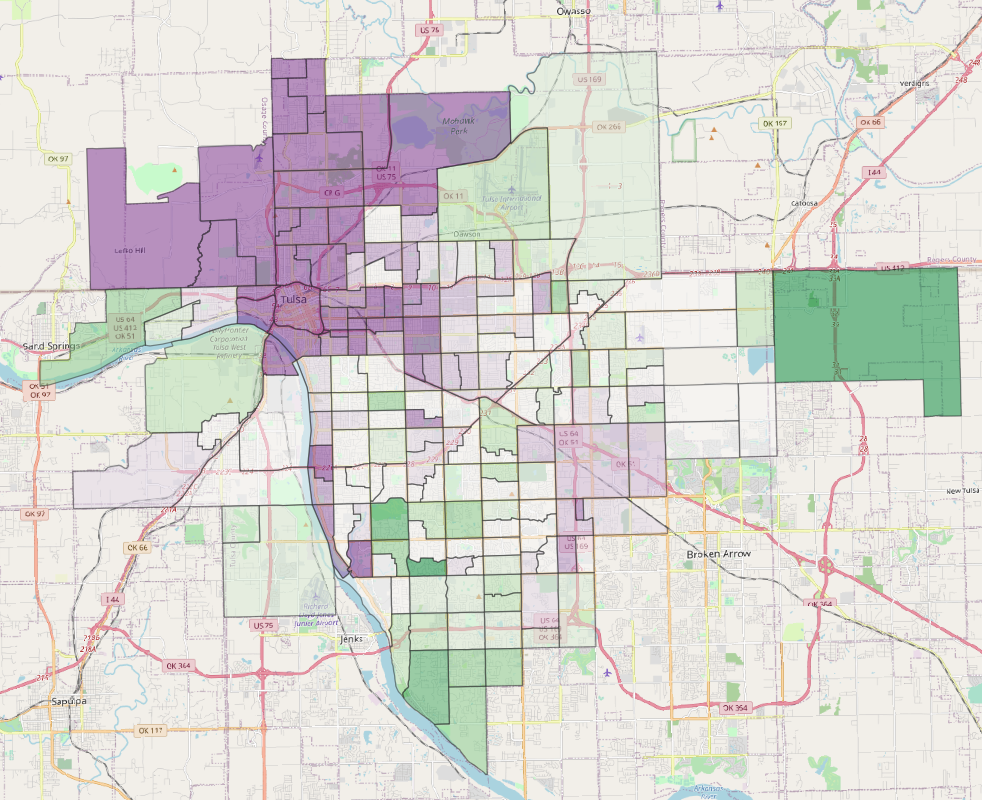
Recall that in 2016, Bynum was effectively the Democratic nominee, the progressive candidate, as no prominent Democrat sought the office. Bynum won with support from Democrats along with those Republicans who were disappointed with Dewey Bartlett Jr's service as mayor. This year, Greg Robinson captured those left-wing voters, while there was no well-funded or well-organized candidate to Bynum's right. Bynum's vote slid most dramatically in north Tulsa and midtown, while his vote improved in south Tulsa.
Now, there are all sorts of problems with the map above. I haven't figured out how to tweak the projection so that a line drawn north through the center of Tulsa points straight up (the shapefiles I'm using are based on Oklahoma as a whole). I haven't figured out how to add a legend, and I didn't bother adding precinct numbers as labels. I haven't done an intersection between the precinct shapefile and the municipal shapefile so that I only show the portions of precincts that are within the city limits. There's no proprietary watermark. All that said, it does give you a picture of how votes shifted, and I hope to put together additional (and more attractive) maps in the near future.
Here's one more: The percentage voting yes or no for Proposition 2, which involved changing a handful of references in the City Charter from he/him to they/them to be "inclusive." Darkest blues are yes > 70%, darkest reds are yes < 30%. Overall, the proposition passed by the narrowest margin of the five on the ballot, with 54.7% support.
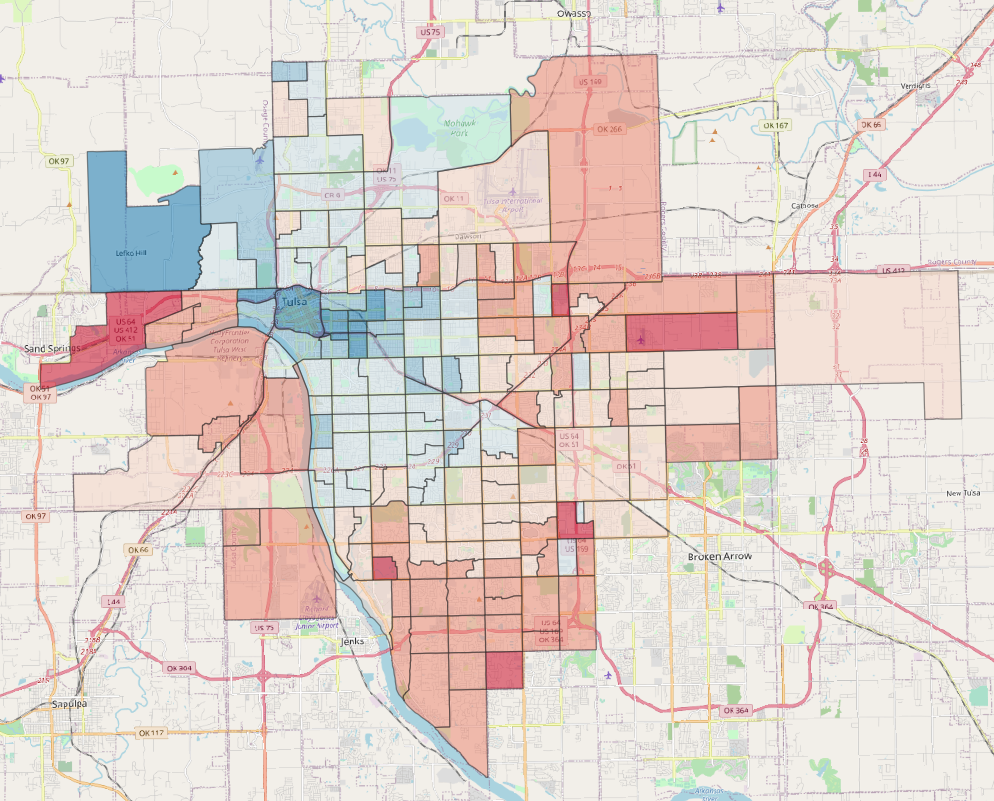
 Polls are open today until 7 p.m. The Oklahoma State Election Board's online voter tool will let you know where to vote and will show you a sample of the ballot you'll see.
Polls are open today until 7 p.m. The Oklahoma State Election Board's online voter tool will let you know where to vote and will show you a sample of the ballot you'll see.
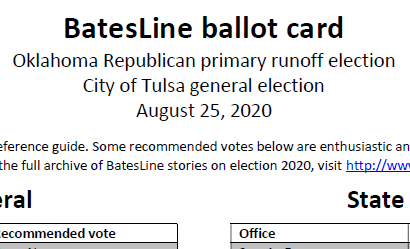
Click the link above to download a printable ballot card listing the candidates I'm recommending and (if in the district) voting for in the Oklahoma runoff and City of Tulsa general election on August 25, 2020. Below I'll add more detailed information on issues and candidates. (This entry will change as I decide to add more detail, link previous articles, or discuss additional races between now and election day. The entry is post-dated to keep it at the top.) Please note that the rows on the chart are alternately shaded and unshaded for readability. The presence or absence of shading has no other significance.
As I posted this late Thursday night, there were races I had planned to write about in detail, but time was short, people were voting, and many have asked for a summary of my recommendations, so I've started by posting my printable ballot card and will fill in some details as I have opportunity between now and Tuesday.
Below you'll find some links to websites I found helpful in learning about candidates, their values, backgrounds, and political opinions.
When in doubt, I look at campaign contributions, which often tell a story about a candidate's ideological leanings or close ties with local power brokers. Campaign expenditures can be telling, too: Certain consulting firms have strong associations with the pay-to-play culture that makes our Republican supermajority legislature more crony-infested than conservative. Then there are principled conservative consultants; their presence on a campaign team is always a hopeful indication that the candidate is also a principled conservative.
In addition to runoffs in federal, state, and county primary elections, the City of Tulsa has an election for mayor and seven of the nine city councilors. (The auditor and the other two councilors won re-election unopposed.)
State law requires City of Tulsa campaign contributions and expenditures to be submitted to the City Clerk's office; the City Clerk posts them on the City's website. Sadly, many city candidates don't seem to have noticed that their pre-election reports were due on Monday, August 17, 2020, even though that information was included in the election packet that was provided to each city candidate who filed for office and which was also posted on the county election board website.
NOTES ON SPECIFIC BALLOT ITEMS:
U. S. House, District 5: Terry Neese. Winner of this runoff will go on to try to win back the seat taken two years ago by Kendra Horn, Oklahoma's lone congressional Democrat. The other runoff candidate, State Sen. Stephanie Bice, voted to raise taxes on Oklahomans in 2018, bypassing a vote of the people. I should note that there are controversies surrounding Neese's business practices and claims of Native American roots. (My primary pick, David Hill, would have been a much better choice than either Neese or Bice.)
Senate 35: Cheryl Baber. Baber is a known quantity among conservatives in state and local conservative circles. Creekpaum's strong backing from "the Kaiser System" should worry conservatives. Baber is the only candidate in the race who was wise enough to oppose SQ802. Baber has been endorsed by Governor Stitt, Senator Lankford, former Governor Keating, and the current and previous senators for District 35, Gary Stanislawski and Jim Williamson, both solid conservatives. I'm hoping this year will be an echo of Stanislawski's first race in 2008: City Councilor Cason Carter, a favorite of the Money Belt establishment, ran first in the primary, 44.5% to 40.6%, but fell short of a majority and lost the runoff to Stanislawski.
City of Tulsa proposed charter amendments: Yes on 1, 3, 5 (the odds are good), No on 2, 4. Click the link to read the actual charter changes that each proposition would enact, and why I support or oppose each.
Mayor of Tulsa: Ty Walker (R). Walker is a small businessman and a political conservative who deals with Tulsans from all walks of life on a daily basis. As someone who has lived on both sides of the tracks, as he puts it, Walker can be a bridge to link the disparate communities of our city, with a focus on encouraging home-grown businesses. This was a tough call, but I believe that Walker is the better candidate of the two conservatives running. You can read his response to the BatesLine questionnaire here. You can read my comments on each of the candidates in my article endorsing Walker.
The incumbent mayor is blind to the needs of the city beyond his little Midtown Money Belt world, indecisive, two-faced, and in thrall to progressive philanthropy. His disastrous handling of COVID-19 and of the George Floyd protests managed to make everyone angry at him, inspiring seven candidates from across the political spectrum to run against him.
In the council races, I support replacing all of the City Councilors, except Cass Fahler in District 5.
Tulsa Council District 1: Jerry Goodwin (D).
Tulsa Council District 3: Paul Eicher (D).
Tulsa Council District 4: Kathryn Lyons (R). Lyons was the only District 4 candidate to respond to the BatesLine questionnaire, and she gave solid answers. (The incumbent councilor, Kara Joy McKee, allowed constituents' homes to be condemned without investigating the situation, and she made a promise she didn't keep about initiating the revocation condemnation promptly at the beginning of 2020.)
Tulsa Council District 5: Cass Fahler (R). At a time when law enforcement is under attack, we need a strong advocate for law and order on the council.
Tulsa Council District 6: Christian Bengel (R).
Tulsa Council District 7: Justin Van Kirk (R).
Tulsa Council District 9: Jayme Fowler (R).
MORE INFORMATION:
Here are some blogs, endorsement lists, candidate questionnaires, and sources of information for your consideration.
- Talk Radio 1170 Pat Campbell podcast archive
- Sheridan Church's Tulsa Town Hall candidate forum
- 918 Vote / League of Women Voters mayoral forum
- iVoterGuide: Candidate responses to a detailed questionnaire written from a conservative Christian point-of-view
- Muskogee Politico news, questionnaires, and analysis
- Muskogee Politico 2020 runoff election tips and picks
- Charlie Meadows's picks
- Oklahomans for Life candidate surveys
- Oklahoma Constitution newspaper's Oklahoma State Senate ratings and Oklahoma State House ratings.
- Endorsements from Tulsa Area Republican Assembly and other Tulsa conservative groups
- NRA-PVF endorsements and grades
- Oklahomans for Public Education 2020 voter guide: This is a kind of reverse-psychology voter guide. The red apple next to a candidate's name probably means he or she supports higher taxes, no reduction in school administrative bloat, and no meaningful educational choice for our children and their parents. You should treat a yellow triangle as a gold medal -- this is likely a candidate who will defend taxpayers' interests and work for school choice and educational efficiency.
TIP JAR: If you appreciate the many hours of research that went into this guide and into the rest of my election coverage, and if you'd like to help keep this site online, you can contribute to BatesLine's upkeep via PayPal. In addition to keeping me caffeinated, donated funds pay for web hosting, subscriptions, and paid databases I use for research. Many thanks.
UPDATE 2020/08/25, 12:46pm: I have updated the printable sheet to change my recommendation in Senate District 7, based on recent information from Jamison Faught.
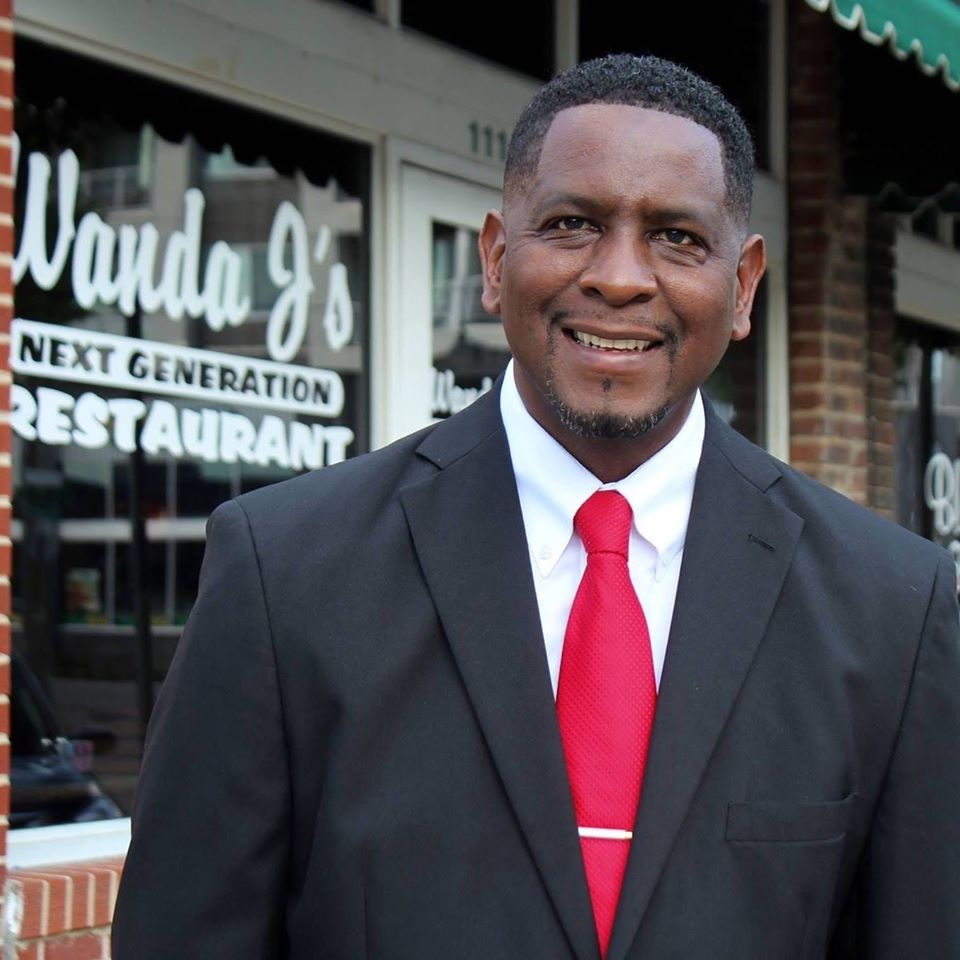
What looked like a sleepy re-election run, for Tulsa Mayor GT Bynum IV as recently as the beginning of May, with one declared opponent and a perennial candidate in jail, turned into a free-for-all. As soon as he had some tough decisions to make, the smiley guy that everyone liked was suddenly the weak-kneed wimp whom everyone despised. COVID-19 (aka the Chinese Communist Bat Virus) and Black Lives Matter protests, and the Trump rally which linked the two, left GT unable to find decisions that would make the vast majority of Tulsans happy. Instead, his vacillation managed to anger Tulsans left, right, and center, and the peak of the first wave of dissatisfaction fell just as filing opened for city office. Seven opponents filed to challenge his re-election.
The Bynum administration has reaffirmed my belief that executive experience in a mayor is not necessary for keeping the city running. (It may be that having a pulse is not necessary for keeping the city's basic functions running.) We've never had a mayor under the current charter with previous experience running a business the size of city government. The various departments that manage basic city functions continue to run regardless of who's mayor. Every mayor since 1990 has had someone either serving as a city manager in all but name (with a title like Chief Administrative Officer or Chief Operating Officer) or with the title City Manager, even though Tulsa's charter calls for a strong mayor, unlike the "weak mayor / council / city manager" government that Oklahoma City has and which is established under the default charter in the state statutes, used by cities like Broken Arrow. Even under a wishy-washy schmoozer like GT Bynum IV, the machinery of city government chugs along. The trash is picked up, clean water flows through our faucets, street projects move forward, police officers and firefighters do their essential work. It's a bit like the body's autonomous nervous system, keeping the heart pumping, the lungs going, and the guts digesting regardless of what is or is not happening in the brain.
What we do need in a mayor is a functioning moral compass, an ability to make sound decisions and stick with them, and a vision that encompasses all of Tulsa. He needs to understand government's proper sphere in the functioning of society alongside families, churches, businesses, voluntary organizations, and other non-governmental mediating institutions, as well as the practical limits on government's ability to fix problems without creating others. We don't have that right now, and I only see one candidate that comes close to meeting that set of criteria: Ty Walker. I have voted for Walker, and I encourage you to do the same.
If you make decisions based on your billionaire backers' priorities or what you see your buddy in Oklahoma City doing, if what you mean by "data-driven" is really just following the conventional wisdom that will make you look smart in the eyes of New York Times reporters or among your homies in the Midtown Money Belt, you're going to have a tough time when difficult dilemmas come your way, and you won't be serving the best interests of the citizens.
A few examples of Bynum IV's bad judgment and lack of vision (from memory, so no links):
- Supporting a tax package (as a councilor and mayoral candidate) that included unnecessary low-water dams, then failing (as mayor) to use the Muscogee Creek Nation lack of interest in funding as an opportunity to repurpose taxpayer dollars in more useful ways.
- Decreeing by executive order that the City of Tulsa will officially pretend that there is no valid distinction to be drawn between real women and autogynephiliacs, thus endangering private spaces for females and separate female athletic competition.
- Allowing the condemnation of a historic neighborhood where young families have been reclaiming old homes in order to protect an office building that was built in a 100-year flood plain, rather than finding a solution that would mitigate stormwater issues while saving the neighborhood.
- Allowing other historic neighborhoods, like Crutchfield and Crosbie Heights, to live under the threat of blight declarations.
- Pushing restriping of city streets to the confusion of the vast majority of street users (drivers).
- Being a tough guy for Pat Campbell's conservative audience, vowing not to cave to protestors, and then a few hours later, caving to protestors, cancelling Tulsa's participation in a show (LivePD) which seemed to offend the protestors because it showed Tulsa Police officers ably handling difficult challenges.
- Waffling on President Trump's appearance in Tulsa -- neither asking him to stay away out of concern for the spread of COVID-19 and civil unrest, nor taking advantage of Trump's visit to show off Tulsa to our nation's leaders or to call the President's attention to opportunities for city/federal cooperation.
- Choosing not to institute a curfew. Other cities used curfews to allow peaceful protests to continue, while halting after-dark gatherings that often led to the smashing of store windows and dangerous obstruction of major streets.
- Shutting down Tulsa's small retailers while allowing big-box stores which sell the same products to stay open during the pandemic. Bynum followed the herd, rather than creatively adapting lessons from places like Hong Kong, which combined moderate closures (schools and large gatherings), voluntary mask wearing, and reduced business capacity to allow businesses to stay open.
- Pushing for an Office of Independent Monitor that would subject police officers to the oversight of a board without any law enforcement experience and without direct accountability to the public.
- Pushing to raise the permanent sales tax level to pay for a basic function of government.
I could go on, but I need to finish this and get some sleep.
Bynum needs to go, but who should replace him? Can a challenger beat an incumbent who has raised over $600,000 for re-election? Let's go through our list of options, starting with a few easy discards.
Ricco Wright is on the ballot but ended his campaign after attempting to handle an accusation of sexual assault by stating his belief in the woman's account (Believe All Women!) but implausibly blaming his actions on being "roofied." (Rohypnol -- "hypno" is in the name -- causes "loss of muscle control, confusion, drowsiness and amnesia," not uninhibited sexual aggression.)
I discussed perennial candidate Paul Tay during the filing period. Someone who filed for office the day he finished a five-month jail sentence for outraging public decency doesn't deserve further consideration.
Zackri Whitlow seems to be running on a whim. He did not show up in the voter registration database in Tulsa prior to filing for office. He has not filed any campaign finance reports with the City Clerk, not even a Statement of Organization, indicating that he has not raised or spent any significant money to reach and persuade voters. He has appeared in a few online forums to promote a few pet ideas.
Craig Immel has impressed me with his willingness to respond to voters' questions on various platforms, including the BatesLine mayoral questionnaire. Even when I can't agree with him, I respect his thoughtfulness. I also admire his willingness to serve as the lead plaintiff against the plan (supported by Bynum) to convert riverfront park land to a basic shopping center. Of all the candidates, he has the best grasp of urban planning and development issues. If it were a head-to-head matchup between Immel and Bynum, I'd vote for Immel. But on other issues, he is left of center. His support for SQ 805 and SQ 780 points to a naive view of crime and its causes that would jeopardize the lives and property of Tulsa citizens. His stated disdain for the State of Oklahoma reflects an unbecoming elitism and sends a signal to small-town and rural Oklahomans who come to the metro area for jobs that they'll feel more at home in the suburbs.
Greg Robinson II has done an impressive job of organizing a substantial last-minute challenge to a well-funded incumbent mayor. His fundraising has unofficially surpassed $200,000 (but his campaign is one of several that has neglected to file the required pre-election report of contributions and expenditures). I've received almost as many mailers from Robinson as I have from Bynum, which points to a well-organized effort to reach and energize voters. In 2016, Bynum was helped by the fact that no Democrat bothered to file; instead, Bynum was effectively the Democrat nominee in the officially non-partisan mayor's race. Now Robinson may scoop up the base of Bynum's 2016 support.
Robinson's rhetoric and resume point to him being a doctrinaire leftist, but there are a couple of facts about him that are intriguing for the conservative voter: First, Robinson's father, Greg Robinson, Sr., was a Republican who came within 900 votes of unseating incumbent Democrat county commissioner Wilbert Collins in 2002. (Milton Goodwin, the Republican nominee in 1998, ran as an independent in 2002 and acted as a spoiler.) Tragically, Greg Sr. died suddenly of a heart attack at the age of 48, just 10 weeks after the election. Greg Jr. was a young teenager at the time. Second, Robinson (Jr.) is a founder of Greenwood Leadership Academy, a charter school, so there may be some openness to school choice that the incumbent (whose parents could afford an educational alternative) doesn't share.
A conservative case could be made for preferring Robinson over Bynum. It would be refreshing to have a mayor, for the first time in almost three decades, with a clue about life outside the Money Belt. And I've noticed that it's easier to mobilize certain Republican officials to oppose bad ideas when they've been proposed by Democrats; if a RINO backs the idea, they fall in line.
To the alarmists out there: No one can win on Tuesday unless they get 50% of the vote. If a majority of voters don't vote for Robinson, he won't win. If a majority of voters don't vote for Bynum, he won't win on Tuesday. A November runoff, even if it's between Bynum and Robinson, the two best-funded candidates, would be a better result than if either candidate succeeded in getting 50% on Tuesday. Both would have to find ways to reach out to the conservatives they've spurned if they want to win. But I'd rather see a conservative in the runoff.
A conservative with political experience was unlikely to risk running against a well-funded, well-heeled incumbent who was (until a few months ago) quite popular and a registered Republican, albeit a RINO. So the two conservative claimants in the race are not well-funded, are still working their day jobs, don't have the background in city policy that you might hope for, and do have some things in their past that aren't very attractive.
Ken Reddick was the first to step up to challenge Bynum. He ran a credible race for City Council District 7 in 2018. But despite the early start, he failed to lay the groundwork necessary for a successful challenge, a task that involves fundraising, garnering endorsements (or at least persuading people not to line up behind the incumbent) Reddick has filed no campaign contribution and expenditure reports at all beyond the Statement of Organization for his campaign committee.
Restaurateur Ty Walker joined the race on the final day of filing. He had been thinking about preparing for a 2024 run, but he was persuaded by some regular customers to go ahead and file this time around. He also ran for City Council in 2018, in the race for the open seat in District 5.
I reached out to both candidates shortly after filing closed and encouraged them to meet and discuss if either of them would be willing to drop out and support the other. As far as I know that never happened. This would have been an ideal situation for state or county Republican leadership to intervene, perhaps by holding an endorsing convention to take the place of the primary that was eliminated by the move to non-partisan elections. But despite my private encouragement, nothing was done.
Because of CCP Bat Virus (which is real, which can kill and maim people, and which spreads through droplets) I have minimized my person-to-person interactions and have been grateful that I can work, for the most part, from home. But I did attend one meet-and-greet each for Reddick and for Walker. At the Reddick meet-and-greet at the Interurban Restaurant, I watched Reddick passively listen to various attendees vent their spleens about their pet issues. I waited around for close to an hour in hopes that the candidate would stand up and talk about his priorities and plans and take questions, but I got tired of waiting and went home.
A few weeks later I attended Ty Walker's meet-and-greet in a supporter's home. Walker had been out knocking doors in neighborhoods around Tulsa. His campaign team seemed sharp and focused (although they failed to get his pre-election contribution filing in as of this time). He held forth for a couple of hours, talking about his priorities and answering questions from the audience. I didn't agree with all of his answers, but his principles and his heart were clearly in the right place. Many of those differences reflect a perspective formed by growing up in Tulsa's North Community. As he points out often, he has lived on both sides of the track and uniquely among the options on our ballot can be a bridge across that track.
A BatesLine reader writes:
I believe that Ty Walker has the skills, temperament, and ethics needed for the job as mayor of Tulsa.
- I believe him to be the most free of political influence. With several activists running for the position, and a mayor with a track record of heavy outside influence, Walker leads the pack.
- I believe he's best equipped to guide the city through the economic recovery necessary from Covid. As a small business owner, specifically in the food service industry, he's well aware of the hardships small businesses face. I believe he's capable of not only seeing the current economic recovery, but he can help underserved communities grow their currently limited economic infrastructure.
- I believe he's an inspiration to everyone on the personal struggles needed to be successful, and I believe that will help him be a positive agent for growth and helping the city mend it's current socio and economic divides.
- I believe he's the most practical candidate, in terms of wanting to achieve practical goals. He's a crawl - walk - run type of candidate who won't be overly fixated with trying to fix everything with one singular action.
Walker isn't beholden to local or national philanthropists or interest groups. As someone actively involved in owning and running a restaurant, he's understands what our small businesses need as we try to recover from the COVID-19 shutdowns. He also understands the specific challenges that exist in the parts of the city where businesses have had difficulty taking root. He understands what it is to try and fail and try again. His vision is practical consisting of modest, incremental steps.
Something I noticed when watching the Sheridan Church Tulsa Town Hall forum (which was very well done) is that Ty Walker was one of the few candidates actually settled and involved in a church. (The question about church involvement is asked at about 58 minutes into the video.) Walker is an associate pastor at New Salem Missionary Baptist Church in Okmulgee. At the beginning of this video from a few weeks ago, Ty Walker is giving some remarks (the video comes in after he has started) prior to the sermon, reminding the congregation that we will all meet death, none of us know when, and that we should all seek to be ready, walking in God's will.
Ty Walker is the candidate for Tulsans who want to bridge the cultural and ethnic divides in our city (without the kind of radical policies that are tearing other American cities apart), who want a conservative mayor who values the free market, economic opportunity, and growing local business (rather than lavishing incentives on billionaires trying to land the big fish).
I voted (at the election board Friday) for Ty Walker for Mayor, and I urge you to do the same. If he wins against all odds, Tulsa would be blessed. If Walker falls short, a large vote for him would signal that the remaining candidates need to reach out to conservatives in the November runoff.
A postscript: A few weeks ago, I was made aware of some accusations about Ken Reddick's marital history. I've been to the county court clerk's archive, looked at his divorce file, asked him some questions. I want to be careful about how I talk about these things for the sake of all involved, and I hope to post something this evening for the many people who are asking about it. Bottom line is that in my opinion there are internal inconsistencies in Ken Reddick's own account of his past and between his account and the official records, and that reinforces my doubts about his qualities as a candidate and a leader.
Back on August 12, I sent the three eligible candidates for City Council District 4 a questionnaire using the email addresses provided in their declarations of candidacy or on their websites. The questionnaire included the 18 questions I asked the mayoral candidates, plus a question about neighborhood conservation districts and a question about the candidates for mayor.
I received only one reply, from Kathryn Lyons.
Age: 53
Employment: Community volunteer, former property manager
Neighborhood: Lakewood Heights
Voter registration: Republican
Campaign web page: kathryn4tulsa.com
Campaign Facebook page: Kathryn Lyons for Tulsa City Council
The detailed responses to the questionnaire, if you're viewing this on the home page, are after the jump.
Last Wednesday, BatesLine sent a questionnaire to the six serious candidates for Mayor of Tulsa, using the email addresses provided in their declarations of candidacy or on their websites. We sent two reminders. We received replies from three candidates: Craig Immel, Ken Reddick, and Ty Walker.
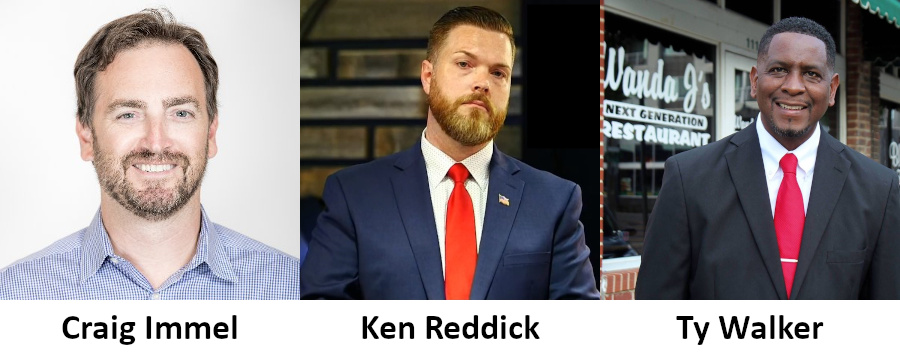
The survey consists of 18 questions, selected and adapted from over 60 questions suggested by BatesLine readers. I tried to cover a wide range of topics while keeping the number of questions at a reasonable level for candidates busy in the final stages of the campaign.
Rather than split the answers up in separate entries by candidate, I'm presenting them side-by-side, which runs the risk of someone reading an answer and connecting it with the wrong candidate. To help you mentally associate the answer with the candidate who gave it, I've added social-media-type icons in front of each response.
Here is a brief overview of the candidates who responded to the questionnaire:
Age: 44
Employment: Construction manager
Neighborhood: near Gilcrease Hills (Council District 1)
Voter registration: independent
Campaign web page: movetulsaforward.com
Campaign Facebook page: Craig Immel - Independent for Tulsa Mayor
Twitter account: @MoveTulsaFwd
Immel hosted a Reddit AMA (Ask Me Anything) session.
Age: 37
Employment: Owner, Clean Slate Contracting LLC and Tulsa Fence & Roofing Company
Neighborhood: Regency Park (Council District 7)
Voter registration: Republican
Campaign web page: kenreddick4mayor.com
Campaign Facebook page: Ken Reddick for Tulsa Mayor 2020
Age: 54
Employment: Owner, Wanda J's Next Generation Restaurant
Neighborhood: Virginia Lee Addition (Council District 5)
Voter registration: Republican
Campaign web page: tywalkerfortulsa.com
Campaign Facebook page: Ty Walker for Tulsa Mayor
The detailed responses to the questionnaire, if you're viewing this on the home page, are after the jump.
Five amendments to Tulsa's city charter -- our city's constitution -- will be on the August 25, 2020, ballot. As usual, the summaries you will see on the ballot paper only tell part of the story.
For the TL;DR folks, here are my recommendations:
Proposition No. 1: Yes
Proposition No. 2: No
Proposition No. 3: Yes
Proposition No. 4: No
Proposition No. 5: Yes
Or to put it even more briefly, vote YES on the ODD numbered propositions, NO on the EVEN numbered propositions. ODD is GOOD, EVEN is BAD.
Now the details, after the jump. Strikethroughs show language that would be deleted if the proposition passes, underlines show language that would be added.
I'm hearing that minions of Mayor Bynum IV are putting the word out that voting for one of his conservative opponents in the August 25, 2020, election will help elect someone further to the Left than the left-of-center Bynum. The rumor is self-serving garbage, preying on ignorance of the confusing new election process that Bynum IV and friends quietly slid into the charter three years ago, the sixth change to the city election process in 11 years.
Here's the truth: Unless one candidate has the support of 50% of the voters on August 25th, there will be a runoff in November with at least two candidates. Putting it another way: If a majority of voters vote against incumbent Bynum IV, and if a majority of voters also vote against Greg Robinson, the leading registered-Democrat candidate, neither will win the election outright on August 25.
The crucial task for conservative Tulsans who want a conservative mayor is to unite on August 25 behind one of the two conservative alternatives to Bynum (Ty Walker or Ken Reddick) so that we have a real conservative to vote for in November and Bynum can retire from being a failed mayor and resume his career as a schmoozer.
2020 is the first Tulsa mayoral election that will use the new election procedure approved by voters in a low-turnout November 2017 special election. (Only charter amendments on the ballot; only 10,425 votes were cast on this ballot item compared to 58,848 in the June 2016 mayoral primary. There ought to be a state law limiting city charter changes to high-turnout elections, or perhaps setting the threshold as 50% of the votes in the previous presidential election.)
Here is a direct link to the current charter language, Article VI, Section 2.2. Here's the key language:
If a candidate for office is unopposed at the election or becomes unopposed by death, disqualification or withdrawal, such candidate shall be deemed elected. If a candidate for an office receives more than fifty percent (50%) of all votes cast for that office at the election, such candidate shall be deemed elected. If more than two (2) candidates file for an office and no candidate receives more than fifty percent (50%) of all votes cast at the election for that office, the names of the several candidates for the office receiving the greatest number of votes totaling fifty percent (50%) at such elections shall be placed on the ballot at a run-off election in November, on the day specified by the laws of Oklahoma, and the candidate receiving the greatest number of votes cast at said run-off election shall be deemed elected. In the event of a tied vote among the said candidates, the election shall be decided by lot.
The same process applies to election for any Tulsa city office, including city councilors and the city auditor.
Note that the runoff may involve only two candidates, but if votes are split evenly enough between the candidates, it may involve more. Here are a few possible scenarios. Note that the numbers are entirely made up -- I have no polling data -- used simply to illustrate how different spreads of votes among candidates will lead to different runoff possibilities.
Scenario 1 is simple: If a majority of the August 25 voters support one candidate, he is elected to a four-year term as mayor. This is what happened in June 2016.
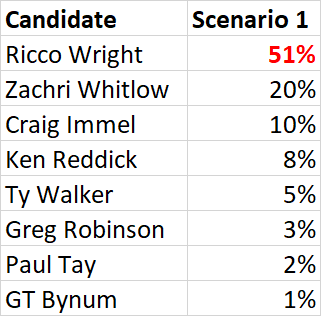
In Scenario 2, no one gets a majority of the votes on August 25, but the total of the top two is greater than 50%. In the illustrated scenario, Robinson and Bynum are the top two ranking candidates, and the sum of their percentage is 60%, so those two candidates advance to the November runoff. Note that in this hypothetical scenario, the two conservative candidates, Walker and Reddick, have enough votes that if they had all coalesced behind one of the two, the conservative candidate would have beaten out Bynum for the 2nd spot in the November runoff.
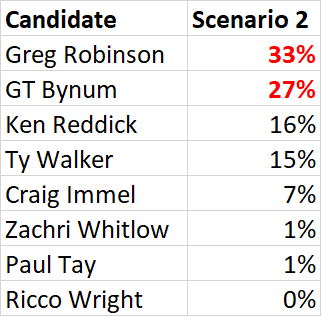
Scenario 3 illustrates what happens if the top two candidates fall short of a combined 50% total. In this case, Robinson and Walker would combine for 49% of the vote, so the third-place candidate, Immel, also would advance to the November runoff. Since those three combine for 68% of the vote, the condition would be satisfied, and no more candidates would advance to the runoff.
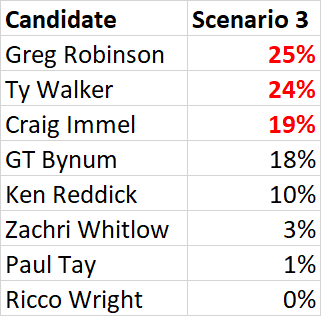
Scenario 4 is an extreme example to illustrate what would happen if the voters were very evenly spread among all seven of the active candidates. The top three candidates combine for only 46%, so one more candidate would have to be added to the November runoff ballot to reach the 50% threshold.
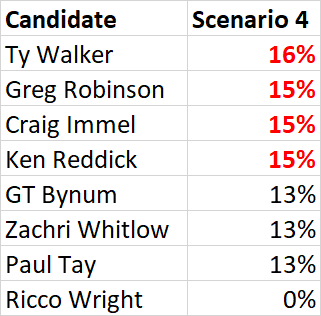
Scenario 5 is the most extreme hypothetical of all. Supposing all eight candidates got exactly the same number of votes -- 12.5% each. In this case, four candidates would advance (because the language says "totaling 50%," not exceeding 50%), and which four candidates advance would be decided by lot.
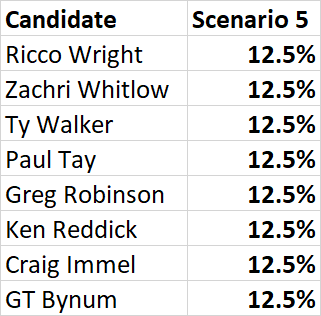
Note that there is no runoff after the November runoff. If more than two candidates advance to the November runoff, the election becomes a first-past-the-post race -- the candidate with the greatest number of votes, even if well short of a majority, is elected.
In addition to all the usual federal, statewide, legislative, and county races on the Oklahoma ballot next Tuesday, June 30, 2020, this is also the school board general election, which was postponed from April due to the CCP Bat Virus. Two of Tulsa's seven school board offices are on the ballot -- Office 5 is an open seat, and Office 6 features a challenge to a 24-year-incumbent.
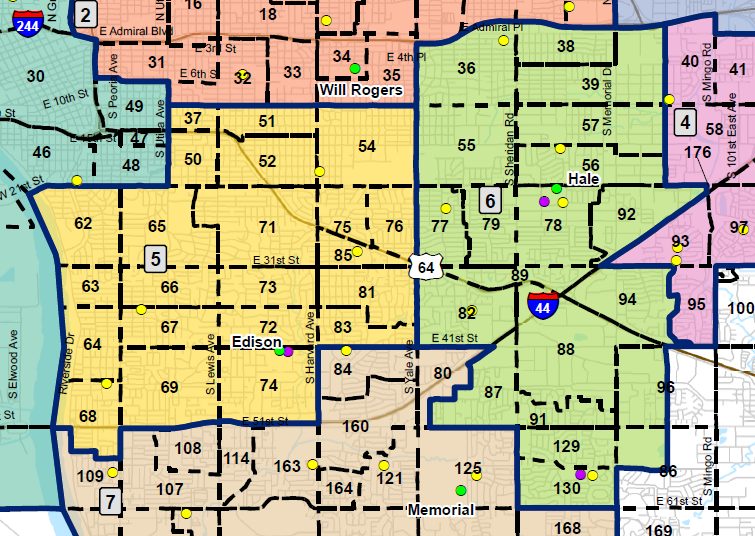
Last time I posted campaign contributions and expenditures for school board races, before the February primary, I had to go to the Education Service Center, to the school district clerk's office, and take photos of the reports. This time, that wasn't going to be possible or advisable, given everyone's desire to minimize contact, so I filed an open records request through the Tulsa Schools website and sent an email directly to district clerk Sarah Bozone. I have yet to receive a reply.
UPDATE 2020/06/29: At 9 a.m. the day before the election, TPS has responded to my open records request. I will not have time to turn these PDFs into a tabulated account of campaign contributions, so you will have to look at them yourselves. I have taken the files provided, given them more meaningful file names, and run them through OCR, but that's it. Each file contains all of the ethics reports filed by the candidate during this campaign.
- District 5: John Croisant
- District 5: Scott Pendleton*
- District 5: Shane Saunders
- District 6: Ruth Ann Fate
- District 6: Jerry Griffin
*Pendleton finished third in the primary. He was the only candidate not advancing to the general who managed to raise and spend enough money to be required to file ethics reports.
I shouldn't even have to ask: When the clerk receives a report, it ought to be immediately scanned in and posted on the district website. Better yet, let's fix the law so that all candidates and campaign committees in the state use the Oklahoma Ethics Commissions's electronic filing system. Currently, county candidates file ethics reports with their county election board, school board candidates file with the district clerk, municipal candidates file with the city clerk. Having one system with a consistent interface and electronic records would serve everyone better -- except perhaps for candidates with something to hide.
Which brings me back to the topic. Knowing that I was unlikely to get a timely reply from the district clerk, I emailed the candidates directly on Tuesday, requesting their ethics reports, asking who had endorsed their campaigns, and asking for their opinion on the plan to extend Superintendent Deborah Gist's contract for an additional three years in a snap vote one week before new school board members would be elected.
All four candidates responded, but only two, Shane Saunders, candidate for Office 5, and Jerry Griffin, the Office 6 challenger, both Republicans, sent me their campaign contribution reports. Office 5 candidate John Croisant and 24-year Office 6 incumbent Ruth Ann Fate, both Democrats, said that they had filed their reports with the district clerks -- a very passive-aggressive response.
Three of the four objected to the school board voting to extend Gist's contract right before the election; Fate, the incumbent, wrote, "I will be making my decision tonight." Only two of the seven school board members, Jennettie Marshall and Stacey Woolley, voted against the contract extension. Next week that vote might have been 4-3 against extension.
Endorsements reported to me by the candidates:
- Tulsa World: Croisant, Fate
- Tulsa Regional Chamber: Saunders, Fate
- Tulsa County Republican Party: Griffin
- American Federation of Teachers: Griffin
Griffin has also been endorsed by John Remington, the third-place candidate in February's primary.
Notable contributors during this reporting period: Shane Saunders received contributions from his erstwhile boss, former Congressman John Sullivan (Saunders served as Sullivan's press secretary), and from former Tulsa Mayor Robert J. LaFortune. Jerry Griffin received a contribution from the Tulsa County Republican Party; parties are allowed to help candidates running in non-partisan elections. Griffin also received a donation from the American Federation of Teachers.
Please read my previous report on the pre-primary contributors to all of the Tulsa School Board candidates, including the two who are refusing to provide BatesLine with copies of their pre-general reports.
Contributors and vendors are from Tulsa unless otherwise noted. If you're reading this on the home page, the lists for each candidate are after the jump.
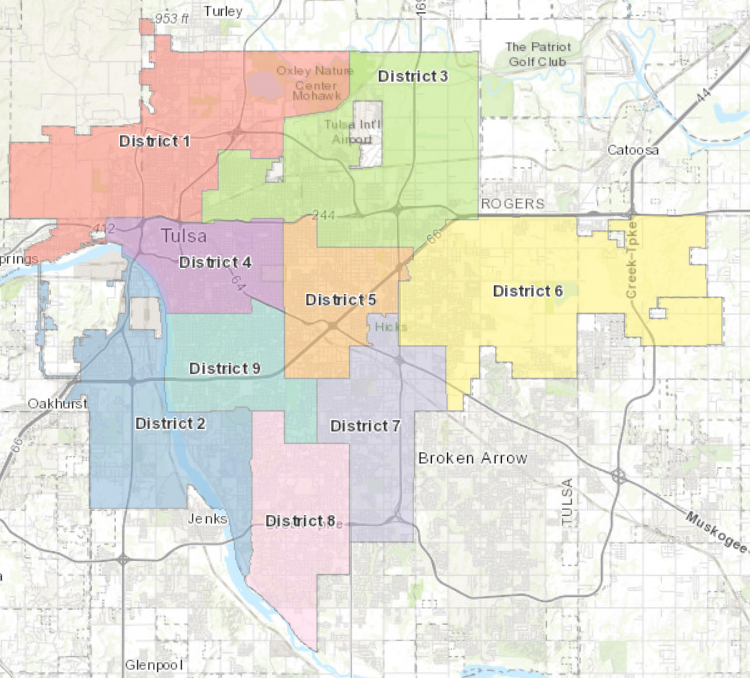
I will be updating this entry as new information becomes available.
MIDDAY UPDATE:
Two more candidates have filed for mayor this morning: Gregory Robinson II, a Democrat, who was introduced at his Election Board press conference by Dr. Tiffany Crutcher, and Craig Immel, an Independent, who was the lead plaintiff in the battle to keep park land on Riverside Drive from being turned into a shopping center that might possibly someday have an REI-type store in it.
As previously announced, incumbent Democrat District 1 City Councilor Vanessa Hall-Harper has filed for re-election. She has one opponent so far, Jerry Goodwin, also a registered Democrat.
Auditor Cathy Champion Carter and City Councilors Jeannie Cue, Crista Patrick, Cass Fahler, and Phil Lakin remain unopposed as of noon Wednesday.
No other new filings as of noon today. Candidates must file a notarized declaration of candidacy along with a $50 cashier's check or 300-signature petition at the Tulsa County Election Board, 555 N. Denver Ave., by 5 pm, today, Wednesday, June 10, 2020.
CLOSE OF FILING:
Two more candidates, Republican Ty Walker and Democrat Ricco Wright, filed for Mayor Wednesday afternoon, bringing the total number of candidates to eight.
City Auditor Cathy Champion Carter and two city councilors, Jeannie Cue (District 2) and Phil Lakin (District 8), failed to draw an opponent and have been reelected to another two-year term.
Two previously unopposed incumbents now have opposition. Paul Eicher, a Democrat, will face District 3 councilor Crista Patrick. Republican District 5 councilor Cass Fahler drew four opponents during the final hours of filing, all of them Democrats in their 30s, including 2018's second-place finisher Michael William Arthrell-Knezek aka Mykey Arthrell.
Kathryn Lyons, a Republican, filed in District 4, and Cheyenna Morgan, a Democrat, filed in District 6. Both districts have Democrat incumbents.
The names, ages, and addresses below are from the Tulsa County Election Board's official list of Monday filings. I've added incumbent status, registered voter name in brackets if it differs from the name used for filing, and party affiliation, which I checked against the current voter registration database.
Mayor
GT Bynum, 42, 3607 S. Florence Ave, Tulsa, OK 74105, incumbent, Republican
Paul Tay, 57, 415 W Archer, Tulsa, OK 74103, Independent
Ken Reddick, 37, 5008 S 85th East Ave, Tulsa, OK 74145, Republican
Zackri Leon Whitlow, 39, 2951 W 66th St, Tulsa, OK 74132, Democrat
Craig Immel, 44, 1739 West Newton Street, Tulsa, OK 74127, Independent
Gregory C. Robinson II, 30, 2307 E 29th Pl N, Tulsa, OK 74110, Democrat
Ty [Tyron Vincent] Walker, 54, 8538 E 24th St, Tulsa, OK 74129, Republican
Ricco Wright, 38, 1913 N Santa Fe Place, Tulsa, OK 74127, Democrat
Council District 1
Jerry [James G] Goodwin, 57, 2406 W. Pine Pl., Tulsa, OK 74127, Democrat
Vanessa Hall-Harper, 48, 2020 West Newton Street, Tulsa, OK 74127, incumbent, Democrat
Council District 2
Jeannie Cue, 5313 S 32 Pl W, Tulsa, OK 74107, incumbent, Republican
Council District 3
Crista Patrick, 46, 1918 N. Joplin Ave., Tulsa, OK 74115, incumbent, Democrat
Paul Eicher, 31, 509 S 76 East Ave, Tulsa, OK 74112, Democrat
Council District 4
Kara Joy McKee, 41, 1119 S Quebec Ave, Tulsa, OK 74112, incumbent, Democrat
Landry Miller, 26, 221 N Union Ave, Tulsa, OK 74127, Democrat
Casey Robinson, 38, 1260 E 29th Pl, Tulsa, OK 74114, Republican
Kathryn Lyons, 53, 2831 E 28th St., Tulsa, OK 74114, Republican
Council District 5
Cass [Cassidy G] Fahler, 47, 7383 E 24th St, Tulsa, OK 74129, incumbent, Republican
Mykey Arthrell [Michael William Arthrell-Knezek], 35, 1747 S Erie Pl, Tulsa, OK 74112, Democrat
Justin Schuffert, 35, 2216 S. 78th E. Ave, Tulsa, OK 74129, Democrat
Rachel Shepherd, 30, 5719 E. 30th St, Tulsa, OK 74114, Democrat
Nat Wachowski-Estes, 34, 1213 S 87th E Ave, Tulsa, OK 74112, Democrat
Council District 6
Christian Bengel, 52, 13173 E. 29th Street, Tulsa, OK 74134, Republican
Connie Dodson, 53, 13302 E. 28th St., Tulsa, OK 74134, incumbent, Democrat
Cheyenna Morgan, 29, 9 South 185th East Avenue, Tulsa, OK 74108, Democrat
Council District 7
Chad Ferguson, 40, 6751 S. 71st East Avenue, Tulsa, OK 74133, Republican
Justin Van Kirk, 29, 10709 E 100 Pl, Tulsa, OK 74133, Republican
Lori Decter Wright, 45, 8706 E 86th St, Tulsa, OK 74133, incumbent, Democrat
Council District 8
Phil [Philip Lawrence] Lakin Jr., 52, 9808 S. Knoxville Avenue, Tulsa, OK 74137, incumbent, Republican
Council District 9
[Bobbie] Leeann Crosby, 36, 3845 South Madison Ave, Tulsa, OK 74105, Democrat
Jayme Fowler, 61, 5601 S Gary Ave, Tulsa, OK 74105, Republican
City Auditor
Cathy Champion Carter, 65, 4120 E 22nd Place, Tulsa, OK 74114, incumbent, Democrat
UPDATED to include Justin Van Kirk and Jayme Fowler, whose names I overlooked when initially composing this report. UPDATED again to include information from Zackri Leon Whitlow and Landry Miller about their voter registration.
I've made this plea repeatedly on social media, on Pat Campbell's show on 1170 KFAQ, and here on this blog. And yet I look at the list of candidates after two of the three days of the filing period, and I am amazed to see so many unopposed candidates. Four of the city councilors do not have opponents, nor does the city auditor.
It's especially surprising after a fortnight that has put the spotlight on the importance of city government. Questions of law and order, police protocols and accountability are at the top of everyone's minds, and these questions are answered by our city council and mayor. Providentially, while we're all thinking about the importance of municipal policy, we have the greatest opportunity to make a difference, because it's filing period for city offices.
We only get to choose a new mayor once every four years, and now is the time to make sure there's someone on the ballot that you'd be happy to vote for. We only get to choose a new auditor and councilors every two years. There seems to be a lot of discontent, from across the political spectrum, with Tulsa City Hall, and I'd have thought that that discontent would burst forth this week in an outpouring of candidates for city office.
Do people still believe in elections? It looks like the protesters that blocked interstates and arterial streets don't. Instead of trying to elect a new mayor and councilors who are in agreement with their aims, to have a real seat at the table, it appears that the protesters' plan is to continue to protest, presumably in hopes that the existing mayor and council, whatever they may personally believe, will be inspired or intimidated by the protests into adopting the protesters' platform.
Perhaps because the news media loves the drama of protest and civil (or uncivil) disobedience more than the slog of legislation and debate, mass protests caught the public imagination as the way to effect change. Even the venerable Atlantic magazine is talking about "toppling" President Trump, as if we didn't have a presidential election in five months. Protesters in the US and the UK are defacing monuments and demolishing statues, as if it were impossible to enact the removal of offensive monuments through the ordinary processes of representative government.
You've heard the marchers' chants: "This is what democracy looks like!" No, this is what ochlocracy looks like. Democracy looks like people knocking doors for candidates, casting ballots, and sitting around committee tables poring over budget books.
In February 2020, the City Council voted 5-3 against putting a charter amendment on the ballot to create an Office of Independent Monitor (OIM) to review use of force cases by the police. Councilors Vanessa Hall-Harper (District 1), Kara Joy McKee (District 4), and Lori Decter Wright (District 7) were the only votes in support of putting Mayor Bynum's proposal on the ballot. All three have drawn opponents.
Councilors Jeannie Cue (District 2), Crista Patrick (District 3), Connie Dodson (District 6), Phil Lakin (District 8), and Ben Kimbro (District 9) voted against the OIM charter change, and Cass Fahler (District 5), who was absent, had voiced opposition to the proposal. Kimbro isn't running again, but only one of the other five (Dodson) has drawn an opponent. Only two candidates have bothered to file for the open District 9 seat.
Marlin Lavanhar, senior pastor of All Souls Unitarian Church, has drawn a couple of scathing cartoons critical of Mayor Bynum's response to the protests. So where is the challenger to Bynum from the left side of the spectrum?
I've checked a few names prominent in the protests and found that some of them are registered to vote in these districts whose councilors are opposed to their goals. If I dug further, I suspect I'd find that there's a leading protester in each one of these council districts. Why aren't they using their youth, enthusiasm, and energy to run for a real seat at the table, instead of being satisfied with scraps?
So who are the candidates who have already filed? Let's start with a look at the mayoral candidates.
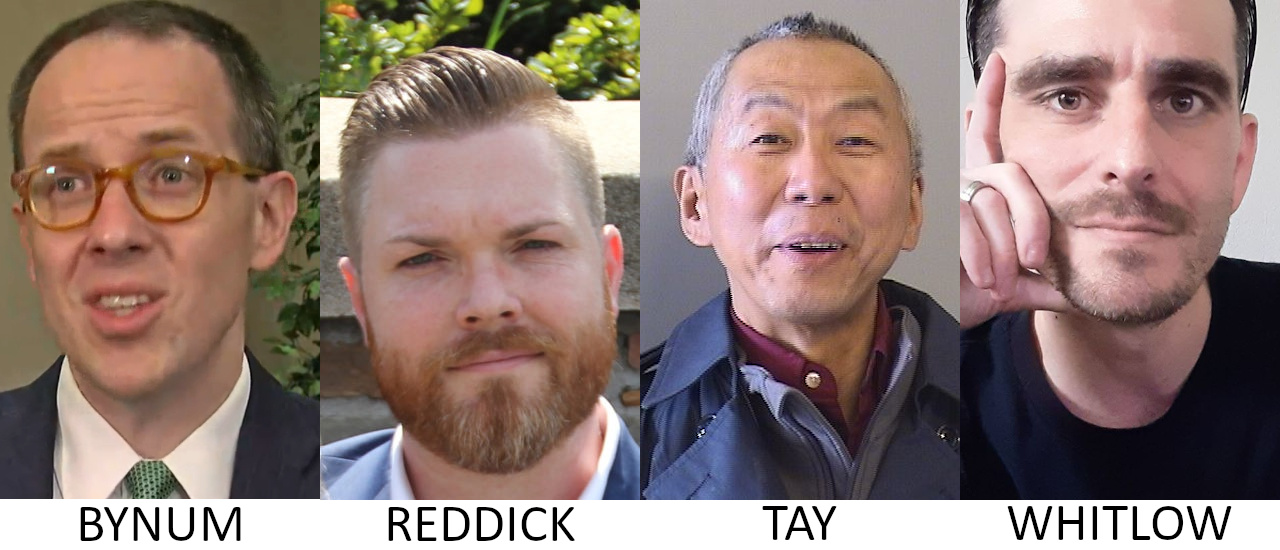
GT Bynum is running for a second term. A professional schmoozer in one form or another for his entire career (Senate staff assistant, public relations, corporate communications, governmental affairs, lobbyist), Bynum IV is clearly in over his head, particularly now that the job demands tough decisions, not just ribbon-cutting and pious virtue signalling. Michael Mason has documented Bynum's deep ties to billionaire George Kaiser. In the words of New York Times writer Cassidy McDonald, "Kaiser has turned Tulsa into 'beta city,' U.S.A," a guinea pig for his social experiments, which are grounded in the materialistic worldview set out in his "Giving Pledge." However noble, Mr. Kaiser's intentions, Tulsans should not give him carte blanche to direct city resources to carry out his private philanthropic aims. Tulsans need elected officials who are not beholden to a billionaire who seems to see us as lab rats.
Ken Reddick is running as a conservative Republican and has already been campaigning for a few months. After many years as a manager for an electrical utility contractor and as an electrician, Reddick now has his own business managing projects for contractors in the utility and electrical fields, helping them to streamline processes and find efficiencies. Reddick ran a credible special election race for District 7 City Councilor in November 2018, but conservative support was divided among several candidates.
Paul Tay, who has run many times for mayor and city council, and made an infamous cameo appearance at the 2016 RSU-TV mayoral debate between incumbent Mayor Dewey Bartlett and challenger GT Bynum, was released Monday after five months in the Tulsa County Jail for outraging public decency. I won't repeat the specifics of his crime, for which he was convicted in a jury trial in January, but the state's witness list and the judge's instructions to the jury will tell you more than you wanted to know. Tay also has felony charges pending for possession of a stolen vehicle and violation of a protective order. When I first met him, way back in 1998, he had some cogent thoughts on urban planning and bicycles, but there's nothing cogent about his increasingly bizarre behavior. On his declaration of candidacy, Tay listed the Day Center for the Homeless as his place of residence, contrary to his voter registration address.
The fourth candidate, Zackri Leon Whitlow, doesn't appear in the voter registration database at all. Whitlow shows up on LinkedIn, Facebook, and IMDb. It appears that he is an insurance agent and broker, and that his agency may have been located in California, in Langley, Oklahoma, and now in Tulsa. It appears that he served as a butler at the Playboy Mansion, credited with an appearance on the reality series based there, "The Girls Next Door." I haven't found anything indicating his views on city issues.
City Auditor Cathy Champion Carter (formerly Cathy Criswell) is still unopposed. She has held the post without a challenger since her first election in 2013, when she defeated appointed incumbent Clift Richards and Josh Lewis. If the listing of internal audit reports on her City Auditor website is complete, Tulsa hasn't had a sensitive payments audit since FY 2017, and the pace of internal audits in general has slowed considerably over the past few years. It was the intention of the framers of our City Charter that the city auditor should be an "anti-mayor," acting as a whistleblower on abuse and corruption. Instead, Carter continues to follow the pattern set by Phil Wood, the first city auditor under the 1989 charter, quietly churning out reports but doing little or nothing to call attention to her team's findings, findings that might uncover inefficiency, waste, or even corruption.
If you're wondering whether or not to file, go for it. Every councilor should have a challenger. After filing closes at 5 pm Wednesday afternoon, you've got two days to investigate and speak with the other candidates who have filed, and if you'd rather back one of the other candidates you can withdraw by 5 pm Friday and take your name on the ballot. But let's at least make sure that every voter has good choices in every office and district.
At the end of the second of three days of candidate filing for the 2020 City of Tulsa elections, the incumbent mayor, auditor, and seven of the nine incumbent city councilors have filed for re-election, with Mayor GT Bynum IV drawing three opponents and incumbent Democratic Councilors Kara Joy McKee (District 4) and Councilor Lori Decter Wright (District 7) each drawing two opponents. Five council seats and the auditor's office have only one candidate each. Incumbent Democrat councilors Connie Dodson (District 6) has also drawn a Republican opponent. Republican District 9 councilor Ben Kimbro is not running for re-election; two candidates have filed thus far for that seat. Democrat District 1 Councilor Vanessa Hall Harper has confirmed to BatesLine that she will file tomorrow; Jerry Goodwin has already filed as a challenger for the seat.
Three candidates may have issues with their voter registrations, or lack thereof. District 4 candidate Landry Miller is not in the current state election board voter registration database as of noon today. Perennial mayoral candidate Paul Tay is registered to vote at 6104 N. Boulder, which does not match the residential or mailing address (both 415 W. Archer St., the Day Center for the Homeless) he supplied on his declaration of candidacy. The voter registration database also does not have a record for mayoral candidate Zackri Leon Whitlow; there is someone with a similar name and age registered to vote at a different address.
(UPDATE 2020/06/10: Zackri Whitlow responded to my inquiry about his voter registration: "I just submitted my Tulsa Voter Registration on Friday. I am an Oklahoma Native but had moved to California back in 2006. I was last registered in Riverside County and that should be in the process of them transitioning my new Voter Registration to Tulsa County." Whitlow says he has registered in Oklahoma as a Democrat. Landry Miller responded to my inquiry: "I am registered in District 4, under my current address. This was only recently changed because I hopped around Tulsa for a while trying to find the perfect spot to live. So therefore my previous registration was in Rogers County, where I waited to update my registration until March, so I could still vote in the presidential primaries (in Rogers County).")
In addition, four candidates -- Jerry Goodwin, Cass Fahler, Phil Lakin, and Leeann Crosby -- have filed under names that do not match their voter registration records. While state law permits a candidate to specify a ballot name that differs from their legal name, both of which are specified on a declaration of candidacy for state office, the Tulsa City Charter does not. In the past, I can recall a number of occasions where a city candidate's full name (including middle name and suffix) appeared on the ballot, even if it differed from the name by which the candidate was popularly known. This 2009 City of Tulsa primary ballot for Mayor and Council District 8 has middle names for almost all of the candidates.
This name-matching requirement seems to have motivated candidates to change their voter registration. For example, the mayor is registered as last name "Bynum," first name "G T," which allows his name to appear as "G T Bynum" on the city ballot, even though that would appear to be in violation of the section of law (26 O.S. 4-112) that requires each voter to register with his full name, in his case, George Theron Bynum IV.
The Tulsa City Charter, Article VI, Section 3.1, requires, "Any person who desires to be a candidate for a City office shall file with the Election Board of Tulsa County or its successor a Declaration of Candidacy which shall contain: A. The name and residence street address of the person as it appears on the voter registration records;...." A candidate who has provided a name and address combination that doesn't match a voter registration record for an address in the City of Tulsa would be in violation of that charter provision.
A candidate with an invalid declaration of candidacy could have his candidacy contested by an opposing candidate or, if no other candidate has filed, by any eligible voter registered to vote for the candidate. Contests must be filed by 5 p.m. Friday with a $250 deposit. Contests are governed by Title 26, Chapter A1, Article V of Oklahoma Statutes, sections 118 to 131. Section 117 states that the relevant election board can reject a Declaration of Candidacy "which on its face shows that the candidate does not meet the qualifications to become a candidate for the office set forth as contained in the Oklahoma Constitution, statutes or resolution calling the election."
Filing continues for one final day, tomorrow, Wednesday, June 10, 2020 at the Tulsa County Election Board, 555 N. Denver Ave., Tulsa, from 8 a.m. to 5 p.m. More about the filing and election process here.
The names, ages, and addresses below are from the Tulsa County Election Board's official list of Monday filings. I've added incumbent status, registered voter name in brackets if it differs from the name used for filing, and party affiliation, which I checked against the current voter registration database.
Mayor
GT Bynum, 42, 3607 S. Florence Ave, Tulsa, OK 74105, incumbent, Republican
Paul Tay, 57, 415 W Archer, Tulsa, OK 74103, Independent
Ken Reddick, 37, 5008 S 85th East Ave, Tulsa, OK 74145, Republican
Zackri Leon Whitlow, 39, 2951 W 66th St, Tulsa, OK 74132, Democrat
Council District 1
Jerry [James G] Goodwin, 57, 2406 W. Pine Pl., Tulsa, OK 74127, Democrat
Council District 2
Jeannie Cue, 5313 S 32 Pl W, Tulsa, OK 74107, incumbent, Republican
Council District 3
Crista Patrick, 46, 1918 N. Joplin Ave., Tulsa, OK 74115, incumbent, Democrat
Council District 4
Kara Joy McKee, 41, 1119 S Quebec Ave, Tulsa, OK 74112, incumbent, Democrat
Landry Miller, 26, 221 N Union Ave, Tulsa, OK 74127, Democrat
Casey Robinson, 38, 1260 E 29th Pl, Tulsa, OK 74114, Republican
Council District 5
Cass [Cassidy G] Fahler, 47, 7383 E 24th St, Tulsa, OK 74129, incumbent, Republican
Council District 6
Christian Bengel, 52, 13173 E. 29th Street, Tulsa, OK 74134, Republican
Connie Dodson, 53, 13302 E. 28th St., Tulsa, OK 74134, incumbent, Democrat
Council District 7
Chad Ferguson, 40, 6751 S. 71st East Avenue, Tulsa, OK 74133, Republican
Justin Van Kirk, 29, 10709 E 100 Pl, Tulsa, OK 74133, Republican
Lori Decter Wright, 45, 8706 E 86th St, Tulsa, OK 74133, incumbent, Democrat
Council District 8
Phil [Philip Lawrence] Lakin Jr., 52, 9808 S. Knoxville Avenue, Tulsa, OK 74137, incumbent, Republican
Council District 9
[Bobbie] Leeann Crosby, 36, 3845 South Madison Ave, Tulsa, OK 74105, Democrat
Jayme Fowler, 61, 5601 S Gary Ave, Tulsa, OK 74105, Republican
City Auditor
Cathy Champion Carter, 65, 4120 E 22nd Place, Tulsa, OK 74114, incumbent, Democrat
UPDATED to include Justin Van Kirk and Jayme Fowler, whose names I overlooked when initially composing this report. UPDATED again to include information from Zackri Leon Whitlow and Landry Miller about their voter registration.
Update as of 1:30 pm Tuesday: Republican Ken Reddick, 37, 5008 S 85th East Ave, has filed for mayor, and Republican Casey Robinson, 38, 1260 E 29th Pl, has filed for District 4 City Councilor. District 2 Republican incumbent Jeannie Cue, and District 7 Democrat incumbent Lori Decter Wright, 45, 8706 E 86th St, have filed for re-election. Cue is unopposed at this point, Wright has a Republican opponent, and there are now three candidates each running for mayor and District 4 city council. Landry Miller is not in the current state election board voter registration database. Paul Tay is registered to vote at 6104 N. Boulder, which does not match the residential or mailing address he supplied on his declaration of candidacy.
At the end of the first day of filing for the 2020 City of Tulsa elections, the incumbent mayor, auditor, and five of the incumbent city councilors have filed for re-election, with the mayor and two city councilors drawing one opponent each. Six council seats and the auditor's office have only one candidate each. No one has yet filed for the District 2 seat, currently held by Jeannie Cue. District 7 councilor Lori Decter-Wright has announced her intention to run for re-election. District 9 councilor Ben Kimbro is not running for re-election.
Filing continues Tuesday and Wednesday at the Tulsa County Election Board, 555 N. Denver Ave., Tulsa, from 8 a.m. to 5 p.m. More about the filing and election process here.
Perennial candidate Paul Tay has listed the Day Center for the Homeless at 415 W. Archer St. as his residence.
The incumbent auditor, the former Cathy Criswell, married William Lloyd Carter, Jr., last July and will be on the ballot this year as Cathy Champion Carter.
The names, ages, and addresses below are from the Tulsa County Election Board's official list of Monday filings. I've added incumbent status, registered voter name in brackets if it differs from the name used for filing, and party affiliation, which I checked against the current voter registration database. I wasn't able to locate Landry Miller's record.
Mayor
GT Bynum, 42, 3607 S. Florence Ave, Tulsa, OK 74105, incumbent, Republican
Paul Tay, 57, 415 W Archer, Tulsa, OK 74103, Independent
Council District 1
Jerry [James G] Goodwin, 57, 2406 W. Pine Pl., Tulsa, OK 74127, Democrat
Council District 3
Crista Patrick, 46, 1918 N. Joplin Ave., Tulsa, OK 74115, incumbent, Democrat
Council District 4
Kara Joy McKee, 41, 1119 S Quebec Ave, Tulsa, OK 74112, incumbent, Democrat
Landry Miller, 26, 221 N Union Ave, Tulsa, OK 74127, unknown
Council District 5
Cass [Cassidy G] Fahler, 47, 7383 E 24th St, Tulsa, OK 74129, incumbent, Republican
Council District 6
Christian Bengel, 52, 13173 E. 29th Street, Tulsa, OK 74134, Republican
Connie Dodson, 53, 13302 E. 28th St., Tulsa, OK 74134, incumbent, Democrat
Council District 7
Chad Ferguson, 40, 6751 S. 71st East Avenue, Tulsa, OK 74133, Republican
Council District 8
Phil [Philip Lawrence] Lakin Jr., 52, 9808 S. Knoxville Avenue, Tulsa, OK 74137, incumbent, Republican
Council District 9
[Bobbie] Leeann Crosby, 36, 3845 South Madison Ave, Tulsa, OK 74105, Democrat
City Auditor
Cathy Champion Carter, 65, 4120 E 22nd Place, Tulsa, OK 74114, incumbent, Democrat
In addition to the high-stakes presidential race, the City of Tulsa has its own high-stakes elections this year. All nine Tulsa City Councilors and the Tulsa City Auditor are on the ballot every two years, but in presidential years, the Mayor's office is also up for grabs. Filing period begins Monday, June 8, 2020, and ends Wednesday, June 10, 2020. Candidates file in-person at the Tulsa County Election Board, 555 N. Denver (in the old Marina-style Safeway building), between the hours of 8 a.m. and 5 p.m. daily.
I'll stick to the nuts and bolts in this item; later I hope to explain why Tulsans should want to run for office and change the personnel running our city government.
Filing involves filling out a declaration of candidacy, getting it notarized, and presenting it at the county election board with a cashier's check for $50 for the filing fee. The filing fee is really a deposit, intended to deter frivolous candidates: If you get more than 15% of the vote when your name first appears on the ballot, or if you're unopposed, you get the cashier's check back. In lieu of the filing fee, you have the option of filing a petition signed by 300 registered voters in your election district if you're running for council, or city-wide if running for Mayor or Auditor. The information packet with all the forms, including the declaration of candidacy and all ethics disclosure forms, is on the Tulsa County Election Board website.
City elections are governed by Article VI of the City Charter. Council races are run by district. Our council districts were gerrymandered in 2012 evidently with the intent of eliminating then-Mayor Dewey Bartlett's harshest critics. The lines will be redrawn next year following the publication of the 2020 census results by a five-person committee appointed by the mayor and confirmed by the City Council. If the next council consists of the mayor's yes men, the mayor will be able to redraw the district lines to benefit his most loyal councilors.
To find your district, consult the Oklahoma Voter Tool, or use the city's interactive map, or consult this set of static maps, showing the precincts contained within each council district.
Tulsa's municipal elections are non-partisan, and the process has changed since the last mayor's election in 2016, going from three stages to two. The August 25, 2020, election is considered a general election. (The same date is used for runoffs for candidates for Federal and State Legislative offices.)
If two candidates are running for an office, the candidate receiving the most votes at the August election wins. If more than two candidates are running, the number of top candidates whose votes total at least 50% advance to a runoff on November 3, 2020, the same date as the general election for U. S. President, Senator, Congressmen, and state legislators.
To give you an idea of how this would work, suppose the top two candidates for Mayor fell short of 50% of the vote combined in a very evenly divided race.
Candidate A 25%
Candidate B 23%
Candidate C 14%
Candidate D 11%
Candidate E 10%
Candidate F 9%
Candidate G 8%
If these were a regular Oklahoma primary, only Candidates A and B would advance to the November runoff, but because their combined total falls short of 50%, one more candidate, C, would advance. Because A, B, and C's vote share exceeds 50% (62%) only those candidates will advance to November. This is a highly unlikely spread, except perhaps in a race for an open seat; in most cases, it will simply be the top two candidates advancing to the November runoff.
If you're unhappy with a mayor who makes concessions without consulting all stakeholders involved in a decision, if you're unhappy with a mayor who refuses to enact a curfew to protect Tulsa residents and businesses, if you're unhappy with a council that fails to hold the mayor accountable, if you're unhappy with councilors who break their promises to constituents who are facing the destruction of their homes by eminent domain, if you're unhappy that most of our elected officials are beholden to a billionaire who sees Tulsa as a lab rat for social experimentation, you ought to consider running for office. We can't have change unless we have different candidates to choose from.
Unofficial RESULTS from the Oklahoma State Election Board:
Postdated to remain at the top through the end of the election.

Polls are open in selected precincts across Oklahoma in the February 11, 2020, school board primary election from 7 a.m. to 7 p.m. Some municipalities also have elections today. The Oklahoma State Election Board's new Oklahoma Voter Portal will tell you where to vote and let you view sample ballots before you go to the polls. Here is the complete and official list of elections in Oklahoma today, February 11, 2020, sorted by county.
Yesterday I was on 1170 KFAQ to discuss today's election with Pat Campbell; here's the audio.
School elections
Only school board races with three or more candidates will have a contest today. If no candidate receives more than 50% of the vote today, a runoff will be held on April 7, 2020, between the top two candidates. Races for which only two candidates filed will also be held on April 7.
Four school board seats are on the ballot in Tulsa County:
Bixby Public Schools, Office No. 5
- Tristy Fryer, Republican (Facebook)
- Todd Hagopian, Libertarian (Facebook)
- Jason Prideaux, Republican (Facebook)
Candidate forum for Bixby school board, Office 5
Owasso Public Schools, Office No. 5
- John H. Haning, Republican (no online presence found)
- Beth Medford, Democrat (Facebook)
- Frosty Turpen, Democrat, incumbent since 1995 (Facebook)
Tulsa Public Schools, Office No. 5: BatesLine endorses Scott Pendleton
- Ben Croff (withdrew from race but still on ballot)
- John Croisant, Democrat (questionnaire, website, Facebook)
- Scott Pendleton, Republican (endorsement, questionnaire, website, Facebook)
- Kelsey Royce, Democrat (questionnaire, Facebook)
- Shane Saunders, Republican (questionnaire, website, Facebook)
Tulsa Public Schools, Office No. 6: BatesLine endorses Jerry Griffin.
- Ruth Ann Fate, Democrat, incumbent since 1996 (
questionnaire, website, Facebook) - Jerry Griffin, Republican (endorsement, questionnaire, website, Facebook)
- Stephen Remington, Democrat (
questionnaire, Facebook)
Note: Remington and Fate did not respond to the questionnaire.
Campaign finance reports for Tulsa school board candidates.
Three Tulsa County districts each have two general obligation bond issues on the ballot. These require passage by 60% of the vote. Links go to the official bond disclosures required by the Bond Transparency Act of 2017, for each. Each disclosure provides detailed purposes for each bond proposition and lists all previous bonds that remain outstanding:
- Jenks Public Schools: Proposition 1, $11.4 million for Freshman Academy expansion, textbooks, technology, classroom equipment; Proposition 2, $870,000 for student transportation equipment.
- Liberty Public Schools: Proposition 1, $780,000 for asphalt resurfacing, fencing, and other repairs; Proposition 2, $320,000 for vehicles for pupil transportation.
- Owasso Public Schools: Proposition 1, $9,805,000 for district-wide facility upgrades (air conditioning, roofs, parking lots, paint, lighting, etc.), technology, instructional materials, weight room, fine arts and athletic uniforms and equipment; Proposition 2, $1,570,000 for vehicles for pupil transportation.
Municipal elections
City Of Collinsville, Mayor
- Jerry Garrett, Democrat, former city commissioner (Facebook)
- Larry Shafer, Republican, incumbent city commissioner for Ward 3 (website, Facebook)
City Of Sand Springs, City Councilmember, Ward 3
- Mike Burdge, Republican, incumbent (Facebook)
- Justin Sean Tockey, Independent (no campaign internet presence)
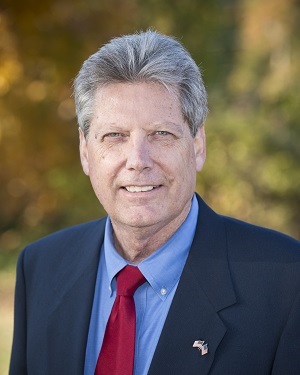 The Tulsa school district needs drastic reform. Enrollment and attendance are dropping, teachers are fleeing, and more and more schools are closing. In the first quarter of Fiscal Year 2016, the Tulsa district had an Average Daily Membership of 39,167. Four years later, ADM for the first quarter of FY2020 was 35,403. (Here's the State Department of Education page with Average Daily Membership and Average Daily Attendance statistics.)
The Tulsa school district needs drastic reform. Enrollment and attendance are dropping, teachers are fleeing, and more and more schools are closing. In the first quarter of Fiscal Year 2016, the Tulsa district had an Average Daily Membership of 39,167. Four years later, ADM for the first quarter of FY2020 was 35,403. (Here's the State Department of Education page with Average Daily Membership and Average Daily Attendance statistics.)
Parents and taxpayers from across the political spectrum want to see Superintendent Deborah Gist gone. Tulsans were outraged by her handling of the recent round of school closings, which seemed to treat board approval as a mere formality, and the controversial handling of federal funds for Indian Education.
We need board members that will treat the superintendent as a hired hand and who will take seriously their responsibility to set policy and monitor spending. We need board members who see the voting public as their bosses, not the philanthrocapitalists that are pushing for experimental curricula in the schools.
After reviewing the questionnaires from the four active candidates for Office 5 and their campaign contribution reports, my choice is clear. I'll be voting for Scott Pendleton in the Tuesday, February 11, 2020, election.
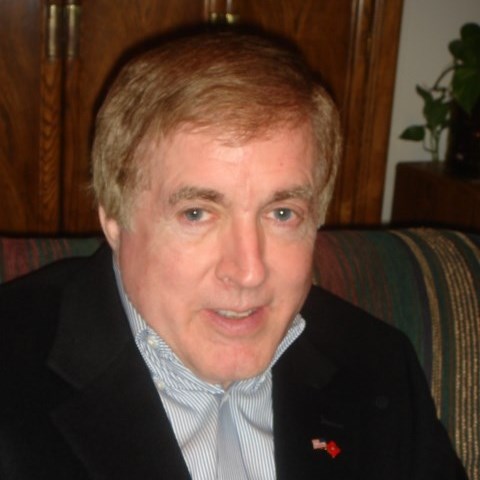 For all the reasons described in my previous post, Tulsa's students, parents, teachers, and taxpayers need an upheaval on the Tulsa Public Schools Board of Education. Only two seats, at most, out of seven are up for election in any given year, but good candidates in both races will allow us to begin the process.
For all the reasons described in my previous post, Tulsa's students, parents, teachers, and taxpayers need an upheaval on the Tulsa Public Schools Board of Education. Only two seats, at most, out of seven are up for election in any given year, but good candidates in both races will allow us to begin the process.
Ruth Ann Fate, a Democrat who was first elected in 1996, is seeking her seventh term on the school board. Fate has been an unapologetic cheerleader and rubber-stamp for Superintendent Deborah Gist. If we want accountability and reform in Oklahoma's largest school system, step 1 is to replace Ruth Ann Fate.
Democrat Stephen Remington refused to submit a response to the BatesLine candidate questionnaire, writing in response to my reminder: "I apologize but I am not filling out your questionnaire. Endorsements are fine but I am not looking to get any. My campaign is not asking for donations either. Ruth Ann has not filled one out either which indicates we will not have a fair assessment of this race." So Mr. Remington's views must remain a mystery. He has also not filed any of the campaign finance reports; his wife has stated on Facebook that he has not raised nor spent more than $200. I find it hard to believe that you can run a competitive race for this district without spending at least $500. Printing alone, even if you're taking photocopied flyers door-to-door, is likely to take you over the reporting limit. (CORRECTION: The threshold requiring a candidate committee to file reports is now $1,000, whether in contributions or expenditures. It's somewhat more plausible that a candidate could manage without spending more than $1,000, but it doesn't seem very probable. )
Dr. Jerry Griffin, a registered Republican, was the first candidate in either district to respond to my questionnaire, and he gave detailed and intelligent answers.
Griffin is committed to exercising real oversight over the superintendent and school administration, which he calls the "primary duty of the school board." He notes the lack of public discussion or pushback from the current board on any administration proposal. "Generally, the votes are 7-0 to approve any proposal with little to no discussion or open debate." As a college professor for the past 20 years, he has seen in his students the damage done by a "fad-of-the-year" K-12 curriculum that has left them unprepared for work at the collegiate level; the board needs to take an active role in setting the educational philosophy and curriculum for the district. The board should openly and publicly scrutinize every grant from federal, state, or philanthropic sources, weighing the costs and benefits before accepting and auditing for compliance with the terms of any accepted grants.
In his response to my question about schools and American patriotism, Griffin wrote:
"Give me your tired, your poor, your huddled masses yearning to breathe free, The wretched refuse of your teeming shore. Send these, the homeless, tempest-tost to me; I lift my lamp beside the golden door." These masses came seeking a better life and a country in which they could experience freedom and achieve their dream. Being an American means, it does not matter your race, class, religion or ethnic heritage - you are first and foremost an American. The schools have a definite role in teaching and developing a sense of patriotism in our youth. This does not mean teaching an ideological or party focus but a pure love for America - that is celebrated daily.
Concerning transgender issues at TPS, Griffin details the changes in Federal Title IX guidance between the Obama and Trump administrations, but notes that Secretary of Education Betsy DeVos reaffirmed her department's commitment to a learning environment free from bullying and harassment. Griffin wants TPS to return to the pre-Obama policy of limiting private female spaces to females, while having single-stall facilities available.
Griffin is a graduate of Tulsa's Edison High School, has his bachelor's degree from University of Tulsa, an MBA from Southern Methodist University, and a Doctorate of Education from TU. He is an adjunct professor at a number of universities, including the University of Oklahoma and the University of Phoenix, with a focus on criminal justice. In Fall 2016, for example, he taught an upper-level course for University of Oklahoma, "Comparative Justice Systems," and a graduate-level course, "Mediation and Conflict Resolution in the Criminal Justice System."
If I lived in Election District 6, I would vote for Jerry Griffin to bring fresh perspective and careful oversight to the Tulsa school board.
UPDATE: Jerry Griffin emails with his complete report, which includes itemized expenditures, and which he says he filed. Either the district clerk's copy got lost, or I overlooked it. I've added the information below.
Below are the campaign ethics reports filed with the Tulsa Public Schools district clerk as of this morning for candidates running for Tulsa school board offices 5 and 6. No paperwork was on file for Kelsey Royce or John Remington. (Ben Croff filed for Office 5, but has announced that he is not running an active campaign, although is name is still on the ballot.) No school district political committees filed a report, and none of the candidate reports showed donations by political action committees.
Because Oklahoma state law is designed to make it as difficult as possible to track campaign donations for local candidates, Friday morning I went to the Education Service Center, where newly appointed district clerk Sarah Bozone provided me with a folder of all the campaign filings received to that time. I photographed each page, and then this evening, when most of you were relaxing, I transcribed and organized the reports by candidate, and by donor in decreasing order of contributions. I'm happy to be notified of corrections. If you'd like to thank me, there's a PayPal Donate button on the home page. You're welcome.

Electronic filing would make this process easier for all concerned. A computerized web app would ensure consistency and would prompt candidates to provide all required information. John Croisant provided occupation and employer for his contributors, but not their addresses, which are also required, and yet he provided addresses for his vendors. Shane Saunders provided contributor addresses, but for many of the donors occupation and employer are "Requested," i.e., not provided. Scott Pendleton and Jerry Griffin managed to get addresses and occupations from all of their donors. Ruth Ann Fate's reports are handwritten and have addresses but not occupations or employers. Jerry Griffin was the only candidate who neglected to itemize his expenditures. [CORRECTION: Griffin says he provided itemized expenditures with his report; these are now listed below.]
The totals below are as reported on the forms. I attempted to double-check a few, but gave up, because candidates differed in how things were supposed to be totaled. John Croisant's forms misused the "Aggregate Total" column, using it for the campaign as a whole, rather than for the total for a particular contributor or vendor over the course of the campaign, and he put campaign totals in the "$50 or less boxes" at the top of the page.
Some observations, based on my many years of looking at campaign contributor lists:
John Croisant is clearly the establishment's pick in Office 5. Croisant's contributors include a who's who of Yacht Owners and Yacht Guests: former Tulsa Mayor Kathy Taylor; two former school board members, Cathy Newsome and Cindy Decker (Decker is now executive director of George Kaiser Family Foundation's Educare); former Cherokee Principal Chief Ross Swimmer; former Oklahoma Corporation Commissioner and Tulsa Finance Commissioner Norma Eagleton; former Oklahoma Policy Institute head David Blatt; retired oilman and major Democrat donor George Krumme; developer and Democrat donor Sharon King Davis; QuikTrip spokesman Mike Thornbrugh; donors associated with BOK Financial and with the Frederick Dorwart law firm; former Tulsa County Superintendent of Schools Kara Gae Neal, wife of retired Tulsa World editor Ken Neal; and former City Councilor Gary Watts, who now serves as the attorney for Sand Springs Public Schools.
Former school board member and GKFF Educare executive director Cindy Decker gave $100 each to John Croisant and Shane Saunders.
One small expenditure caught my eye: Croisant paid for the Democratic Party's canvassing app, which, I assume, would give his campaign access to the party's voter database.
Shane Saunders has the biggest war chest, but fewer donors. Two-thirds of his funds came from two couples: Frank and Diane Murphy of Dallas and Charles and Krista Bendana of Tulsa. Mindy Taylor, Saunders's successor as chairman of Iron Gate ministry, is one of his donors.
Scott Pendleton seems to be funded mainly by family and friends around the country, which is a typical pattern for a candidate who is running on their own initiative, rather than as the minion of the local power structure.
Ruth Ann Fate and Jerry Griffin are both the biggest donors to their own campaigns.
Contributors and vendors are from Tulsa unless otherwise noted. If you're reading this on the home page, the lists for each candidate are after the jump.
BatesLine sent a questionnaire to all of the candidates for Tulsa school board in the two seats up for election in the Tulsa Public School district. The eight questions dealt with the board's authority with respect to the administration, curriculum, music, history and patriotism, the role of philanthropists, and the practical implications of transgenderism.
All four candidates running in the open Office 5 seat submitted a response, but only one of the challengers for Office 6 took the time. (Ben Croff filed for Office 5 but has withdrawn from the race, although his name will appear on the ballot.) The election district for Office 5 is shown in the map above in Harvest Gold, while Office 6 appears as Avocado Green -- very '70s colors.
The primary election will be held on February 11, 2020; if no candidate receives more than 50% of the vote, a runoff will be held on April 7, 2020.
Here is a list of the candidates, with age, address, party registration, and links to their responses, if provided. (While school board races are non-partisan, a candidate's party registration is a publicly available piece of information that I consider informative.)
Office No. 5:
- John Croisant, 42, 62 Woodward Blvd., Tulsa, OK, 74114, Democrat
- Scott Pendleton, 64, 2534 E. 45th St., Tulsa, OK, 74105, Republican
- Kelsey Royce, 37, 336 E. 45th Ct., Tulsa, OK, 74105, Democrat
- Shane Saunders, 39, 4117 S. Birmingham Ave., Tulsa, OK, 74105, Republican
Office No. 6:
- Ruth Ann Fate, 83, 7014 E. 60th St., Tulsa, OK, 74145, Democrat (Did not respond)
- Jerry Griffin, 75, 6552 E. 60th St., Tulsa, OK, 74145, Republican
- Stephen Remington, 42, 4909 E. 2nd St., Tulsa, OK, 74112, Democrat (Did not respond)
 BatesLine has sent a questionnaire to all of the candidates for school board in the two seats up for election in the Tulsa Public School district. The same questionnaire was provided to all four candidates in the Office No. 5 race, and all four responded.
BatesLine has sent a questionnaire to all of the candidates for school board in the two seats up for election in the Tulsa Public School district. The same questionnaire was provided to all four candidates in the Office No. 5 race, and all four responded.
Tulsa Election District 5 is midtown Tulsa, bounded by Riverside Drive, Yale Avenue, 11th Street, and 51st Street, minus the area NW of 21st and Peoria, minus the area SE of 41st and Harvard, and plus a few streets south of I-44 between Riverside and Peoria. This is an open seat. Brian Hosmer, the appointed incumbent who replaced the winner of the 2016 election, Cindy Decker, is not running for the seat. The primary election will be held on February 11, 2020; if no candidate receives more than 50% of the vote, a runoff will be held on April 7, 2020.
Scott Pendleton sent a detailed response, which (if you're viewing this on the home page) is after the jump. His campaign web page is www.scottpendleton.us and he has a Facebook page.
Pendleton welcomes questions from voters via email at scott@scottpendleton.us or by phone at 918-688-7318.
My questions are in bold and italics; Pendleton's responses are in normal type except where bold and underlining were used in his answer.
 BatesLine has sent a questionnaire to all of the candidates for school board in the two seats up for election in the Tulsa Public School district. The same questionnaire was provided to all four candidates in the Office No. 5 race, and all four responded.
BatesLine has sent a questionnaire to all of the candidates for school board in the two seats up for election in the Tulsa Public School district. The same questionnaire was provided to all four candidates in the Office No. 5 race, and all four responded.
Tulsa Election District 5 is midtown Tulsa, bounded by Riverside Drive, Yale Avenue, 11th Street, and 51st Street, minus the area NW of 21st and Peoria, minus the area SE of 41st and Harvard, and plus a few streets south of I-44 between Riverside and Peoria. This is an open seat. Brian Hosmer, the appointed incumbent who replaced the winner of the 2016 election, Cindy Decker, is not running for the seat. The primary election will be held on February 11, 2020; if no candidate receives more than 50% of the vote, a runoff will be held on April 7, 2020.
Shane Saunders sent a detailed response, which (if you're viewing this on the home page) is after the jump. His campaign web page is shanesaunders.org and he has a Facebook page.
Saunders welcomes questions from voters via email at shane.saunders@gmail.com.
My questions are in bold and italics; Saunders's responses are in normal type except where bold and underlining were used in his answer.
 BatesLine has sent a questionnaire to all of the candidates for school board in the two seats up for election in the Tulsa Public School district. The same questionnaire was provided to all four candidates in the Office No. 5 race, and all four responded.
BatesLine has sent a questionnaire to all of the candidates for school board in the two seats up for election in the Tulsa Public School district. The same questionnaire was provided to all four candidates in the Office No. 5 race, and all four responded.
Tulsa Election District 5 is midtown Tulsa, bounded by Riverside Drive, Yale Avenue, 11th Street, and 51st Street, minus the area NW of 21st and Peoria, minus the area SE of 41st and Harvard, and plus a few streets south of I-44 between Riverside and Peoria. This is an open seat. Brian Hosmer, the appointed incumbent who replaced the winner of the 2016 election, Cindy Decker, is not running for the seat. The primary election will be held on February 11, 2020; if no candidate receives more than 50% of the vote, a runoff will be held on April 7, 2020.
Kelsey Royce sent a detailed response, which (if you're viewing this on the home page) is after the jump. She has a campaign Facebook page.
Royce welcomes questions from voters via email at kelseyroycefordistrict5@gmail.com.
My questions are in bold and italics; Royce's responses are in normal type except where bold and underlining were used in her answer.
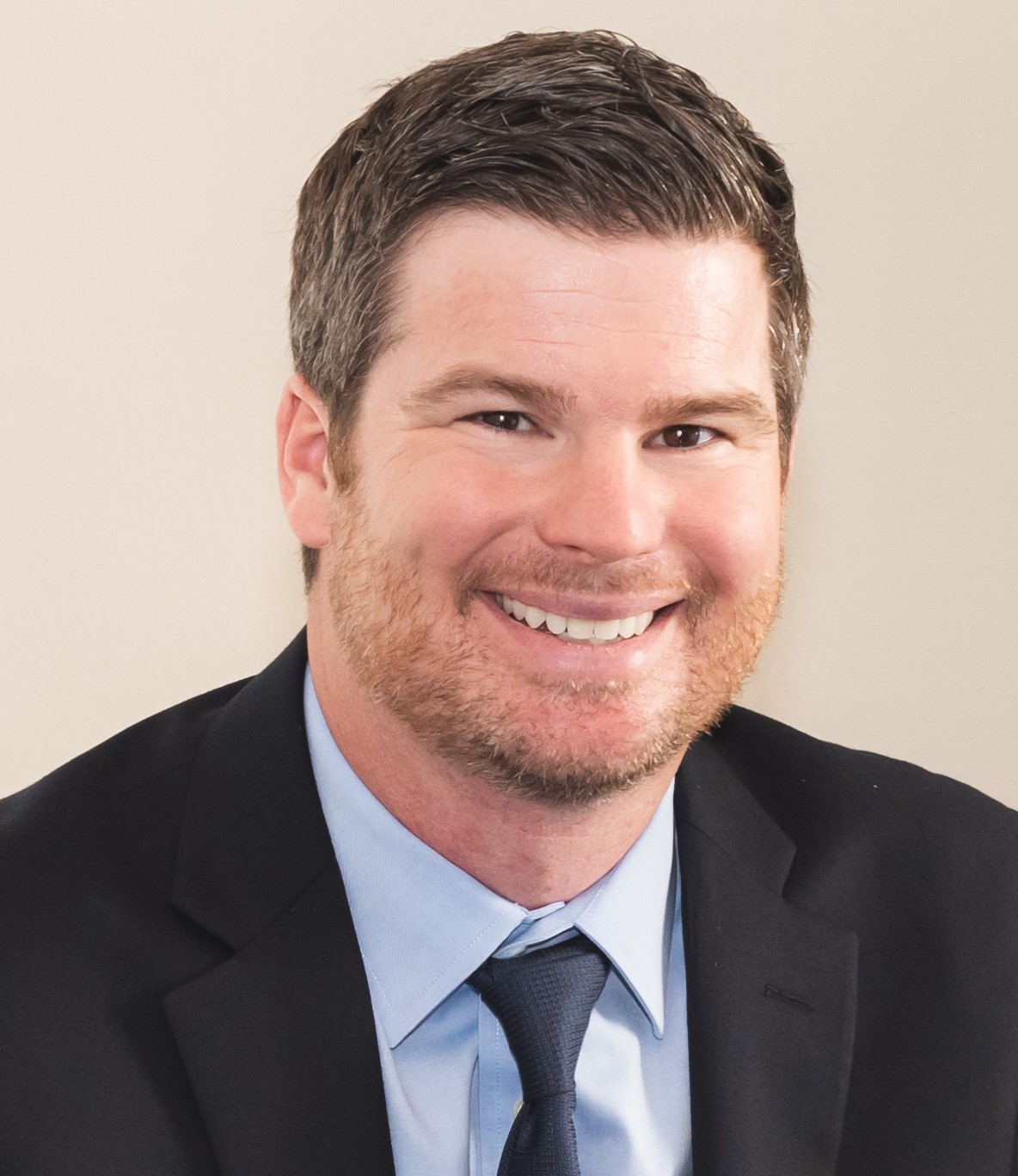 BatesLine has sent a questionnaire to all of the candidates for school board in the two seats up for election in the Tulsa Public School district. The same questionnaire was provided to all four candidates in the Office No. 5 race, and all four responded.
BatesLine has sent a questionnaire to all of the candidates for school board in the two seats up for election in the Tulsa Public School district. The same questionnaire was provided to all four candidates in the Office No. 5 race, and all four responded.
Tulsa Election District 5 is midtown Tulsa, bounded by Riverside Drive, Yale Avenue, 11th Street, and 51st Street, minus the area NW of 21st and Peoria, minus the area SE of 41st and Harvard, and plus a few streets south of I-44 between Riverside and Peoria. This is an open seat. Brian Hosmer, the appointed incumbent who replaced the winner of the 2016 election, Cindy Decker, is not running for the seat. The primary election will be held on February 11, 2020; if no candidate receives more than 50% of the vote, a runoff will be held on April 7, 2020.
John Croisant sent a detailed response, which (if you're viewing this on the home page) is after the jump. His campaign web page is www.johncroisant.com, and he has a Facebook page.
Croisant welcomes questions from voters via email at john@johncroisant.com.
My questions are in bold and italics; Croisant's responses are in normal type except where bold and underlining were used in his answer.
 BatesLine has sent a questionnaire to all of the candidates for school board in the two seats up for election in the Tulsa Public School district. Three candidates are running for Office No. 6: The incumbent of 24 years, Ruth Ann Fate, a Democrat, and two challengers, Stephen Remington, a Democrat, and Jerry Griffin, a Republican. The primary election will be held on February 11, 2020; if no candidate receives more than 50% of the vote, a runoff will be held on April 7, 2020.
BatesLine has sent a questionnaire to all of the candidates for school board in the two seats up for election in the Tulsa Public School district. Three candidates are running for Office No. 6: The incumbent of 24 years, Ruth Ann Fate, a Democrat, and two challengers, Stephen Remington, a Democrat, and Jerry Griffin, a Republican. The primary election will be held on February 11, 2020; if no candidate receives more than 50% of the vote, a runoff will be held on April 7, 2020.
The same questionnaire was provided to all four candidates in the Office No. 5 race, and all four responded. These will be posted as soon as possible.
Tulsa Election District 6 is bounded roughly by I-244, 61st Street, Yale Avenue, and 89th East Avenue, minus wedges of land NE of I-44 & 31st (around Skelly Elementary) and SW of I-44 and 41st Street (around Promenade Mall), and minus the section SW of 51st and Sheridan.
Mrs. Fate did not respond to attempts to contact her via her district email address, and she did not appear to have a web presence at the time the questionnaire was sent. Mr. Remington acknowledged the questionnaire, but refused to respond: "I apologize but I am not filling out your questionnaire. Endorsements are fine but I am not looking to get any. My campaign is not asking for donations either. Ruth Ann has not filled one out either which indicates we will not have a fair assessment of this race."
Dr. Jerry Griffin sent a detailed response, which (if you're viewing this on the home page) is after the jump. His campaign web page is www.drgriffinforschoolboard.com and he has a Facebook page and a Twitter account.
Griffin welcomes questions from voters via email at drgriffinforschoolboard@gmail.com or by phone at 918-521-2623.
My questions are in bold and italics; Griffin's responses are in normal type except where bold and underlining were used in his answer.
UPDATE 2019/12/03: Here is the final list of candidates who filed for the February / April 2020 school board and municipal elections in Tulsa County. The following school board seats had only a single candidate file (Office No. 5, unless otherwise noted):
Broken Arrow: Jerry Denton
Glenpool: James Fuller
Jenks: Chuck Forbes
Keystone (Office No. 3): Sandra K. Thompson
Liberty (Office No. 4): Mark Cottom
Liberty (Office No. 5): Michaela Eaton
Sand Springs: Jackie Wagnon
Skiatook: Olivia Goodwin
Sperry: Gary Juby
Tulsa Tech Center (Office No. 4): David Charney
The following school board races drew two candidates and will have an election on April 7, 2020:
Berryhill: Allisha Craig vs. Patty Lawson
Collinsville: Jeromy Burwell vs. Memory Ostrander
Union: Ken Kinnear vs. Brandon Swearengin
The following school board races drew three or more candidates and will have a primary on February 11, 2020, and, if necessary, a runoff on April 7, 2020:
Bixby: Tristy Fryer, Todd Hagopian, Jason Prideaux
Owasso: John H. Haning, Beth Medford, Frosty Turpen
Tulsa (Office No. 5): Ben Croff, John Croisant, Scott Pendleton, Kelsey Royce, Shane Saunders
Tulsa (Office No. 6): Ruth Ann Fate, Jerry R. Griffin, Stephen Remington
Of the municipal offices in Collinsville, Owasso, and Sand Springs, there is a race for Mayor of Collinsville, between Jerry Garrett and Larry Shaefer, and for Sand Springs Ward 3, between Mike Burdge and Justin Sean Tockey.
This is a reworking of a post from four years ago, but it has been updated with current information about open seats and candidates, and there is some new information below.
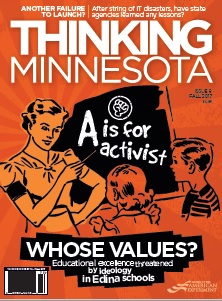 We are in the midst of the annual filing period for public school board positions in Oklahoma, which ends Wednesday, December 4, 2019, at 5 p.m. K-12 school districts will have a single seat, Office No. 5, up for election to a five-year term. K-8 dependent districts (Keystone is the only one in Tulsa County) have three seats that rotate through three-year terms. Liberty, in far-south Tulsa County, also has Office No. 4 on the ballot. After the first day of filing in Tulsa County, 9 seats have drawn one candidate, but only 4 have drawn two candidates. No one has filed in Skiatook, Broken Arrow, or Keystone school districts, or the Tulsa Technology Center board.
We are in the midst of the annual filing period for public school board positions in Oklahoma, which ends Wednesday, December 4, 2019, at 5 p.m. K-12 school districts will have a single seat, Office No. 5, up for election to a five-year term. K-8 dependent districts (Keystone is the only one in Tulsa County) have three seats that rotate through three-year terms. Liberty, in far-south Tulsa County, also has Office No. 4 on the ballot. After the first day of filing in Tulsa County, 9 seats have drawn one candidate, but only 4 have drawn two candidates. No one has filed in Skiatook, Broken Arrow, or Keystone school districts, or the Tulsa Technology Center board.
Filing is also open for a number of municipalities; candidates have filed for city office in Collinsville, Owasso, and Sand Springs.
(Here is the current list of candidates for Tulsa County school board seats. And here's where you'll find maps showing school district and election district boundaries.)
School board filing always comes at a busy and distracted time of year. As I've written before, it's almost as if school board elections were deliberately scheduled to escape the notice of potential candidates and voters.
The school board primary election will be held on February 11, 2020, for those seats where there are three or more candidates. If no one wins a majority of the vote in the February election, a runoff will be held on April 7, 2020. If a seat draws only two candidates, the election will be held on April 7, 2020.
The Tulsa district, largest in the state, has two out of seven seats up for election to a four-year term, Offices No. 5 and 6.
Tulsa Election District 5 is midtown Tulsa, bounded by Riverside Drive, Yale Avenue, 11th Street, and 51st Street, minus the area NW of 21st and Peoria, minus the area SE of 41st and Harvard, and plus a few streets south of I-44 between Riverside and Peoria.
The current member for District 5 is Brian Hosmer, a professor of Western American History at the University of Tulsa. He was appointed in February to replace Cindy Decker, who was elected in 2016 and resigned to serve as director of Educare, a project of the George Kaiser Family Foundation.
As of Monday night, Hosmer has not filed for re-election, but Kelsey Royce and Shane Saunders have filed for the seat. Royce, a registered Democrat, wrote a strongly critical analysis of Tulsa Public School finances published in Tulsa Kids in September 2019. Saunders, a conservative Republican, is current vice chairman and former chairman of Iron Gate, head of Trident Energy, and served as press secretary and legislative assistant to Congressman John Sullivan. He applied to fill the vacant seat when Decker resigned. It looks like either candidate that has filed so far would be an improvement and would hold the administration accountable on fiscal issues, but it remains to be seen where they stand on educational and social issues affecting the schools.
Tulsa Election District 6 is just to the east of District 5 bounded roughly by I-244, 61st Street, Yale Avenue, and 89th East Avenue, minus wedges of land NE of I-44 & 31st (around Skelly Elementary) and SW of I-44 and 41st Street (around Promenade Mall), and minus the section SW of 51st and Sheridan. The incumbent is Ruth Ann Fate, a registered Democrat who was first elected to the seat in 1996. She has one opponent so far, Jerry R. Griffin, a registered Republican.
Two candidates have filed for Bixby Office 5: Tristy Fryer (Republican) and Todd Hagopian (Libertarian).
Two candidates have filed for Union Office 5: Ken Kinnear (Republican) and Brad Swearengin (Democrat).
In addition, Tulsa Technology Center board seat 4 is up for a seven-year term, representing the City of Tulsa west of the river, plus midtown Tulsa from 21st to 81st, Riverside to Yale, plus a square mile from 71st to 81st, 49th West Ave to 33rd West Ave in Creek County, and the half-section from Yale to Hudson, 21st to 31st in Tulsa. TTC seems to have more money than it knows what to do with; it would be lovely to have a fiscal conservative on the board who could curb their building spree. Incumbent David Charney, a real-estate developer and a registered Democrat, has not yet filed for re-election and no one has yet filed to challenge him.
Looking through the online biographies, I think it's fair to assume that there is not a single conservative on the Tulsa School Board. Five (Stacey Woolley, Jennettie Marshall, Shawna Keller, Ruth Ann Fate, and Suzanne Schreiber) are registered Democrats; two (Jania Wester in District 2 and Brian Hosmer in District 5) are registered as independents.
TPS has received increasing criticism from across the political spectrum for fiscal irresponsibility and educational failure:
Black Wall Street Times, 11/26/2016: Anonymous teacher writes, "I literally feel like at TPS, we are set up for failure," cites disastrous educational results, teacher resignations. The same article includes achievement statistics for African-American students; Deborah Brown charter school leads the way with 45% meeting proficiency, while numbers at all but a few schools are in the single digits.
Tulsa World, 11/26/2016: The number of Tulsa schools receiving an F on the Oklahoma School Report card increased from 21 to 28. Only Booker T. Washington High School received an A in academic achievement; Edison HS has a B, Webster, Memorial, and Will Rogers have Ds; the rest of the high schools have Fs. Only 18% of TPS students who were assessed were at or above grade level.
If you're a conservative, you should give serious thought to running for school board, even if you have no school-aged children, even if you have children that are homeschooled or in private school, even if you've never had a child in the public schools. The public school system exists to serve all citizens by educating the children of the community, so every citizen has an interest in the curriculum being used, the way discipline is handled, the condition of the school buildings, and the credentials, skills, and philosophical presuppositions of the teachers, principals, and administrators. Property owners support the school system through ad valorem taxes, and so they have a reasonable interest in the proper and efficient expenditure of those funds. So do all citizens who pay state income and sales taxes, which provide funds to supplement local property taxes.
If you are, like me, a homeschool or private school parent, you will have experience and valuable insights with successful, classical alternatives to the faddish and failing teaching methods, priorities, and content currently in use in the public schools.
I ran some numbers, comparing 2010 census data, broken down by age, with the closest school attendance data I could find, from the 2010-2011 school year. In the Tulsa school district, the average daily attendance was only 67.2% of the number of school-aged children (5-18) who lived in the district on Census Day 2010. That means about a third of school-aged kids were either homeschooled or in private schools, the highest proportion of any district in the metro area. The Tulsa district also had the lowest percentage of residents in the 5-18 bracket -- 17.9%. Compare that to the Sperry district, where 91% of school-aged residents attended the public school, and where 22.6% of the residents were school-aged.
It seems that a substantial number of families move from the Tulsa district to the suburbs when their children reach kindergarten, or, if they stay, many opt for homeschooling or private schools. Those numbers make a strong case for new leaders in the Tulsa district. And if the school board is going to be strictly representative, at least two of the seven members should have children in homeschool or private school, and a majority should be conservative.
Filing is simple: A notarized declaration of candidacy, and a signed copy of the statutory requirements for school board candidates. For this office there is no filing fee. You can view the Oklahoma school board filing packet online. And although school board elections are officially non-partisan, the local and state Republican Party organizations will provide assistance to registered Republicans who are candidates for non-partisan office. (I suspect the same is true of the Democrats.)
There was a time when it was generally agreed that schools existed to transmit knowledge and the values of the community to the rising generation, working alongside parents. At some point, as part of the Gramscian long march through the institutions, the public schools were infiltrated by Leftists who saw them as a venue for missionary work, converting children away from the values of their parents, away from the ideals that made America a prosperous and peaceful nation. The Left has influence over schools of education, textbook publishers, teachers' unions, and continuing education for teachers, administrators, and board members.
Shortly after President Trump was sworn in, Tulsa Schools Superintendent Deborah Gist issued a statement to assure everyone that leftist policies on immigration and transgenderism would continue to be followed in Tulsa Public Schools:
We do not ask for immigration status when families enroll their children. We would not share information about immigration status with the United States Citizenship and Immigration Services. The Supreme Court's 1982 decision in Plyler vs. Doe found that every child has a constitutional right to equal access to education regardless of their immigration status, and we welcome immigrant and refugee families at Tulsa Public Schools.We honor the dignity and equality of our transgender and gender non-conforming students. These students have the right to present themselves in a way that is consistent with their gender identity so long as rules are followed for appropriate dress that apply to all students. They also have the right to use restrooms, locker rooms, and other facilities that are consistent with their gender identity. This may include the use of gender neutral restrooms. We recognize the privacy of students in transition and would not disclose information about gender identity or expression without their consent.
Also in 2017, TPS sponsored a series of meetings called "Exploring Equity," featuring one-sided panels pushing intersectionality.
The next step in the LGBTQ fight for equality lies in increased representation and intersectionality, panelists said Thursday during the latest talk in a Tulsa Public Schools series meant to foster equity.About 150 people sat with each other at 19 rectangular tables to hear a panel on LGBTQ issues and then discuss ideas that struck them during the talk.
The panel included Moises Echeverria, with the Oklahoma Center for Community and Justice; Toby Jenkins, with Oklahomans for Equality; Abril Marshall, with Camp Fire Green Country; Tulsa attorney Alyssa Bryant; and longtime local advocate Nancy McDonald.
If you live in a suburban or small-town district, you might suppose your district is safe from Leftist influence. Think again. Through their college training, their teachers' union newsletter, continuing education courses, peer relationships, and curriculum, your districts' teachers and administrators work in an atmosphere of Leftist presuppositions about the world. It takes strength, conviction, and vigilance for a conservative educator to be conscious of that atmosphere and to resist its influence.
Back in fall 2017, Mandy Callihan, a teacher and parent in Jay, Oklahoma, was infuriated to learn that her 12-year-old daughter was being taught in school about mutual masturbation and anal and oral sex, complete with a worksheet she had to fill out. She and other parents went to the school looking for answers and discovered that the curriculum had been approved by the school board and the middle school principal. The superintendent, claiming ignorance, halted the program, but parents were told it would have to be brought back the following year.
In Minnesota in 2017, the Center for the American Experiment has published a detailed 10-page report on slipping standards at the once-successful Edina school district in the suburbs of the Twin Cities. While academic achievement has declined, Leftist indoctrination is on the rise:
Today, for example, K-2 students at Edina Highlands Elementary School are learning--through the "Melanin Project"--to focus on skin color and to think of white skin as cause for guilt. "Equity" is listed as a primary criterion on the district's evaluation for K-5 math curricula. At Edina High School, teachers are haranguing students on "White Privilege," and drilling into them that white males oppress and endanger women. In a U.S. Literature and Composition class, 11th-graders are being taught to "apply marxist [sic], feminist" and "post-colonial" "lenses to literature."In short, in Edina, reading, writing, math and critical thinking skills are taking a backseat to an ideological crusade.
The Leftist bent of the school district came to public attention after the overwrought reaction by students and teachers to the election results, but the roots of the problem went back several years, to the school's decision to try to close the achievement gap between students of different races by focusing on structural racism as the cause:
The All for All plan's fundamental premise is that white racism--not socio-economic factors like family breakdown--is the primary cause of the achievement gap. If minority students' academic performance is to improve, "systems that perpetuate inequities" must be "interrupt[ed]" and "barriers rooted in racial constructs and cultural misunderstandings" must be "eliminate[d]," according to the district's position statement on "Racial Equity and Cultural Competence in Edina Public Schools."
The story mentions one race-conscious elementary school principal who adopted a curriculum provided by the slanderous Leftist group that calls itself the Southern Poverty Law Center. The same principal eliminated flex groups -- opportunities during one period for children of similar ability levels to work together with a teacher, receiving targeted instruction -- because they were perceived as insufficiently diverse. A high school literature class describes a course goal in this way: "By the end of the year, you will have... learned how to apply marxist [sic], feminist, post-colonial [and] psychoanalytic... lenses to literature."
There are, it must be said, many good conservatives, many devout Christians serving in Oklahoma's public schools. But they need support in the form of school board members who will set policy and curriculum and ensure that the paid staff adhere to it. Conservative school board members should not give undue deference to "professionals" who have been trained to see education through a Leftist lens. The subject matter taught, the methods used, and the values undergirding it all should be firmly under the control of our elected representatives on the school board.
Education is necessarily ideological, because it rests on presuppositions about knowledge, truth, goodness, and beauty. The ideology of the public schools should reflect the ideology of the community.
If I were running, here are some of the planks that would be in my platform:
- Introduce the classical trivium as the philosophy and method of instruction in schools that are currently failing. That includes a heavy emphasis on memorizing facts in the elementary years, which gives children a sense of mastery and accomplishment and provides a solid foundation for subsequent learning.
- Instill pride in our city, state, and country. America has its flaws, but it is a beacon of liberty and opportunity that inspires hope in hundreds of millions of people around the world who wish they could live and work here. Our children should understand the aspects of our culture and history that have made our country prosperous and peaceful. The "black armband" view of history should have no place in our schools.
- Keep the Land Run re-enactments in our elementary schools. It's a fun and memorable way to introduce students to our state's unique history. There is an activist in Oklahoma City who managed to convince historically ignorant principals and school board members there that the '89 Land Run was an act of genocide. Oklahoma City, founded by the '89 Land Run, no longer has reenactments of that event, because of a zealot who pushed her slanderous revision of history on ignoramuses in charge of the schools.
- Return music to the elementary grades. An early introduction to classical music and learning to make music by singing have tremendous developmental and behavioral benefits.
- Review all federal grants and determine whether the cost of compliance and the loss of independence is worth the money.
- Young people who foolishly believe that swapping sexes will solve their deep unhappiness deserve pity and guidance. It is utter cruelty to humor their misplaced hope that "changing gender identity" will cure their misery. Leadership at each school should craft a way to accommodate these deluded young people with compassion and dignity, while protecting the dignity of everyone else, and while affirming the biologically undeniable reality of the two sexes.
Thankfully, doing the right thing on that last point will no longer require resisting Federal pressure, because the Trump administration halted the Obama administration policy that denied funding based on a perverted interpretation of Title IX. But as shown above, Tulsa's school administration is fully on board with radical gender theory, and it's likely that your school administration has been thoroughly indoctrinated in the same way.
Our public schools need principled, intelligent conservative leadership. Will you step forward to serve?
FROM THE ARCHIVES: My 2015 post on school board filing included links to two important articles about the leftist direction of your local public school board, particularly on sexual morality and gender identity.
Stella Morabito wrote, "Ask Not Who's Running For President, Ask Who's Running For School Board," citing the recent battle in Fairfax County, Virginia, over transgender policy as one among many reasons.
Walt Heyer, a man who underwent sex-change surgery and then, realizing that the change failed to give him the happiness he had hoped for, changed back, wrote about the Obama Administration using its perverted interpretation of Title IX to force public schools to trample their students in the transgender war against science and reason.
